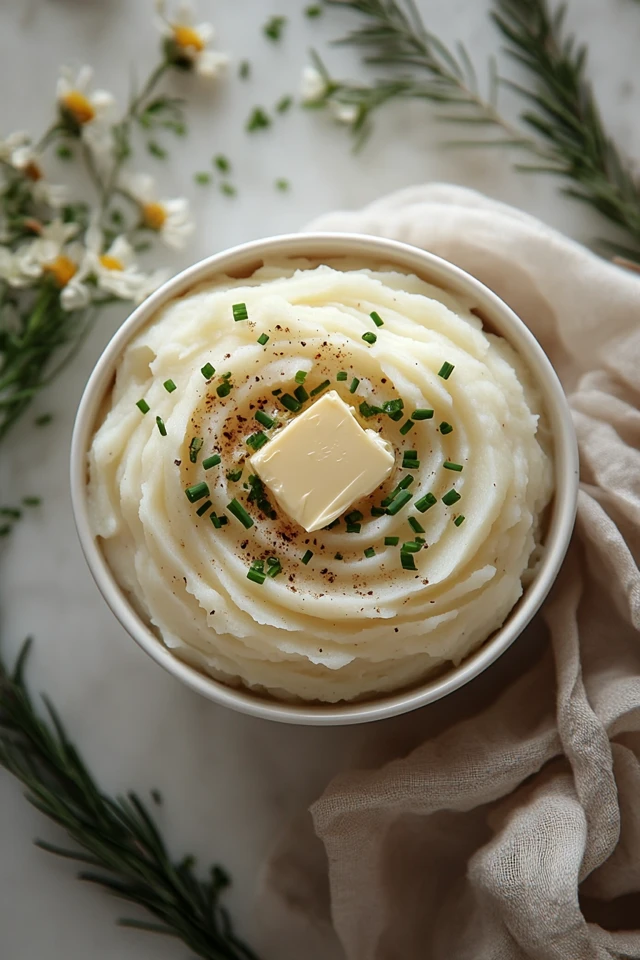Introduction
Mashed potatoes are a quintessential comfort food, beloved for their creamy texture and rich flavor. However, traditional recipes often rely on dairy products like butter and milk to achieve that perfect, silky smooth consistency. For those who are lactose intolerant, vegan, or simply looking to reduce their dairy intake, creating Dairy-Free Mashed Potatoes is a game-changer. This recipe delivers all the indulgence of classic mashed potatoes without the dairy, ensuring a delicious and wholesome side dish that complements any meal.
The Dairy-Free Mashed Potatoes are crafted using plant-based alternatives that not only mimic the creaminess of dairy but also add their unique nutritional benefits. By incorporating ingredients like olive oil, almond milk, and nutritional yeast, this recipe offers a flavorful and health-conscious twist on a timeless favorite. Whether you’re preparing a holiday feast, a weeknight dinner, or a hearty brunch, these mashed potatoes are sure to be a hit with everyone at the table.
In this comprehensive guide, we’ll explore the benefits of this dairy-free version, provide a detailed recipe, and share tips and variations to customize it to your liking. Let’s dive into creating silky smooth mashed potatoes that offer comfort and satisfaction without the dairy!
Why Choose Dairy-Free Mashed Potatoes?
The Dairy-Free Mashed Potatoes are more than just a substitute; they elevate the traditional dish by incorporating wholesome, plant-based ingredients that enhance both flavor and nutrition. Here’s why this recipe should become a staple in your kitchen:
Nutritional Powerhouse
- Olive Oil: A source of healthy monounsaturated fats, olive oil promotes heart health and adds a rich, velvety texture to the potatoes.
- Almond Milk: Provides a creamy consistency without the saturated fat found in dairy milk. It’s also a good source of vitamin E and calcium when fortified.
- Nutritional Yeast: Adds a cheesy, umami flavor while boosting the dish’s B-vitamin content, making it both delicious and nutritious.
- Garlic and Herbs: Enhance the flavor profile with natural aromatics and antioxidants, contributing to overall well-being.
Quick and Easy
With a preparation and cooking time of under 30 minutes, these mashed potatoes are perfect for busy days when time is of the essence. The straightforward process ensures that even novice cooks can achieve perfectly creamy results without any hassle.
Versatile and Customizable
One of the greatest advantages of this recipe is its adaptability. You can easily tweak the ingredients and seasoning to suit your taste preferences or dietary needs. Whether you prefer a garlicky kick, want to add roasted vegetables, or need to incorporate different herbs, these mashed potatoes can be tailored to meet your individual requirements.
Economical and Accessible
The ingredients used in this dish are not only nutritious but also budget-friendly and widely available. Potatoes, olive oil, and almond milk are common staples in most grocery stores, ensuring that you can prepare this meal without breaking the bank or embarking on a special shopping trip.
Ingredients
Creating a delightful Dairy-Free Mashed Potatoes requires a harmonious blend of simple, wholesome ingredients. Here’s what you’ll need:
Main Ingredients
- 2 pounds russet potatoes, peeled and cubed
- 1/4 cup olive oil
- 3/4 cup unsweetened almond milk (or any plant-based milk)
- 2 cloves garlic, minced
- 1/4 cup nutritional yeast
- Salt and pepper, to taste
- Optional: Fresh herbs like parsley or chives for garnish
Ingredient Breakdown
- Russet Potatoes: The ideal choice for mashed potatoes due to their high starch content, which yields a fluffy and smooth texture.
- Olive Oil: Replaces butter, providing healthy fats and a rich flavor that enhances the creaminess of the potatoes.
- Almond Milk: Adds moisture and creaminess without the dairy, ensuring the mashed potatoes are silky smooth.
- Garlic: Infuses the dish with a subtle, aromatic flavor that complements the potatoes beautifully.
- Nutritional Yeast: Offers a cheesy, savory depth to the mashed potatoes while contributing essential B vitamins.
- Salt and Pepper: Essential for seasoning, bringing out the natural flavors of the potatoes and other ingredients.
Instructions
Preparing the Dairy-Free Mashed Potatoes is straightforward and requires minimal preparation. Follow these step-by-step instructions to create a silky smooth and comforting side dish in under 30 minutes.
Step 1: Cook the Potatoes
- Boil Water: In a large pot, bring water to a rolling boil. Add a generous pinch of salt to the boiling water to season the potatoes.
- Add Potatoes: Carefully add the peeled and cubed russet potatoes to the boiling water.
- Cook Until Tender: Boil the potatoes for about 15-20 minutes, or until they are fork-tender and easily pierced with a knife.
- Drain: Once cooked, drain the potatoes thoroughly in a colander to remove excess water. Allow them to sit for a minute to steam off any remaining moisture.
Step 2: Sauté the Garlic
- Heat Olive Oil: In the same pot or a separate skillet, heat the olive oil over medium heat.
- Cook Garlic: Add the minced garlic to the oil and sauté for about 1-2 minutes, or until fragrant and lightly golden. Be careful not to burn the garlic, as it can become bitter.
Step 3: Mash the Potatoes
- Return Potatoes to Pot: Add the drained potatoes back into the pot with the sautéed garlic and olive oil.
- Mash: Using a potato masher or a ricer, begin mashing the potatoes until they reach your desired consistency.
- Add Almond Milk and Nutritional Yeast: Gradually pour in the unsweetened almond milk while continuing to mash the potatoes. Stir in the nutritional yeast for a cheesy, umami flavor.
- Season: Add salt and pepper to taste, adjusting the seasoning as needed to enhance the flavors.
Step 4: Final Touches
- Mix Well: Ensure all ingredients are well combined, resulting in a creamy and smooth texture. If the mashed potatoes are too thick, add a bit more almond milk until you achieve the desired consistency.
- Garnish (Optional): Transfer the mashed potatoes to a serving bowl and garnish with freshly chopped parsley or chives for an added burst of color and flavor.
Step 5: Serve and Enjoy
- Serve Hot: Enjoy your Dairy-Free Mashed Potatoes immediately while they are warm and creamy.
- Pair with Favorites: These mashed potatoes make a perfect side dish for a variety of main courses, including roasted vegetables, grilled tofu, or vegan meat substitutes.
Tips and Variations
While the Dairy-Free Mashed Potatoes are delicious as is, here are some tips and variations to customize the dish according to your preferences:
1. Add Roasted Garlic
For a deeper, sweeter garlic flavor, consider roasting the garlic cloves before adding them to the mashed potatoes. Roasted garlic adds a mellow and rich taste that enhances the overall flavor profile.
2. Incorporate Herbs and Spices
Boost the flavor with fresh or dried herbs and spices:
- Rosemary or Thyme: Add finely chopped fresh rosemary or thyme for an aromatic touch.
- Paprika or Cayenne Pepper: Sprinkle a bit of paprika or cayenne pepper for a subtle kick.
- Chives or Green Onions: Mix in chopped chives or green onions for added freshness and color.
3. Use Different Plant-Based Milks
Experiment with various plant-based milks to find your preferred flavor and consistency:
- Soy Milk: Offers a creamier texture and neutral taste.
- Coconut Milk: Adds a hint of coconut flavor and extra creaminess.
- Oat Milk: Provides a slightly sweet and mild flavor.
4. Make it Extra Creamy
For ultra-creamy mashed potatoes, add a splash of vegan cream or coconut cream. You can also incorporate a spoonful of vegan butter for additional richness.
5. Add Vegetables
Enhance the nutritional value by adding steamed or roasted vegetables:
- Cauliflower: Mix in steamed cauliflower florets for added fiber and a slight sweetness.
- Carrots: Incorporate cooked carrots for natural sweetness and vibrant color.
- Broccoli: Add small broccoli florets for a nutritious boost.
6. Boost with Protein
Increase the protein content by adding:
- Lentils: Stir in cooked lentils for added texture and protein.
- Tofu Crumbles: Mix in crumbled firm tofu for a hearty addition.
- Edamame: Add shelled edamame for a pop of color and protein.
7. Vegan Cheese Options
For a cheesier flavor, consider adding:
- Vegan Parmesan: Sprinkle vegan Parmesan cheese on top for an extra umami boost.
- Vegan Cheddar: Stir in shredded vegan cheddar for a rich, cheesy taste.
- Nutritional Yeast: Increase the amount of nutritional yeast for a stronger cheesy flavor.
8. Sweet and Savory Variations
Create a unique flavor profile by adding sweet elements:
- Maple Syrup or Agave Nectar: Drizzle a small amount for a touch of sweetness.
- Caramelized Onions: Add caramelized onions for a sweet and savory depth.
9. Make it a One-Pot Meal
Simplify cleanup by cooking everything in one pot:
- Cook Vegetables with Potatoes: Add diced vegetables like carrots or celery to the boiling potatoes for a more integrated flavor.
- Blend for Smoothness: Use an immersion blender directly in the pot for ultra-smooth mashed potatoes.
10. Serve with Toppings
Enhance the dish with a variety of toppings:
- Vegan Gravy: Drizzle vegan gravy over the mashed potatoes for added richness.
- Toasted Nuts or Seeds: Sprinkle toasted walnuts, almonds, or sunflower seeds for a crunchy texture.
- Fresh Herbs: Garnish with freshly chopped parsley, cilantro, or dill for a burst of freshness.
Nutritional Information
Understanding the nutritional profile of your meals helps you make informed dietary choices. Here’s the approximate nutritional breakdown for one serving of the Dairy-Free Mashed Potatoes (serves 6):
Per Serving:
- Calories: 250 kcal
- Protein: 5g
- Carbohydrates: 35g
- Fiber: 5g
- Fat: 10g
- Saturated Fat: 1g
- Sugar: 3g
- Sodium: 300mg
Nutritional Highlights:
- Healthy Fats: Olive oil provides heart-healthy monounsaturated fats, promoting satiety and supporting brain health.
- Fiber: High fiber content from potatoes aids in digestion, promotes satiety, and helps maintain healthy blood sugar levels.
- Vitamins and Minerals: Potatoes are rich in vitamin C, potassium, and B vitamins, while garlic and herbs contribute antioxidants and anti-inflammatory benefits.
- Protein: While not high in protein, the inclusion of nutritional yeast adds a modest protein boost, along with essential B vitamins.
Adjusting Nutritional Content:
- Lowering Calories: Reduce the amount of olive oil used in the recipe or substitute with a lighter oil like avocado oil.
- Increasing Protein: Add extra chickpeas, tofu, or a sprinkle of hemp seeds to boost the protein content.
- Reducing Sodium: Use low-sodium vegetable broth for boiling the potatoes and adjust the salt to taste, incorporating herbs and spices for added flavor without extra sodium.
Conclusion
The Dairy-Free Mashed Potatoes are a shining example of how plant-based alternatives can deliver all the comfort and satisfaction of traditional favorites without the dairy. Their silky smooth texture, enriched with healthy fats and savory flavors, makes them a versatile and nourishing side dish that complements a wide array of main courses. Whether you’re hosting a holiday dinner, preparing a weeknight meal, or seeking a wholesome addition to your vegan repertoire, these mashed potatoes offer a delicious and nutritious solution that everyone will love.
By leveraging the simplicity of basic ingredients and the richness of plant-based alternatives, this recipe showcases how minimal components can come together to create a flavorful and wholesome meal. The ease of preparation ensures that you can enjoy a homemade, comforting side dish even on your busiest days, without compromising on taste or health benefits.
Moreover, the adaptability of this dish allows you to experiment and personalize it according to your taste preferences and dietary needs. From adjusting the seasoning to incorporating additional vegetables or proteins, the Dairy-Free Mashed Potatoes are a flexible and delightful addition to any culinary repertoire. Embrace the silky smooth comfort of these mashed potatoes, and let them inspire you to explore the endless possibilities of plant-based cooking.
Picture Gallery
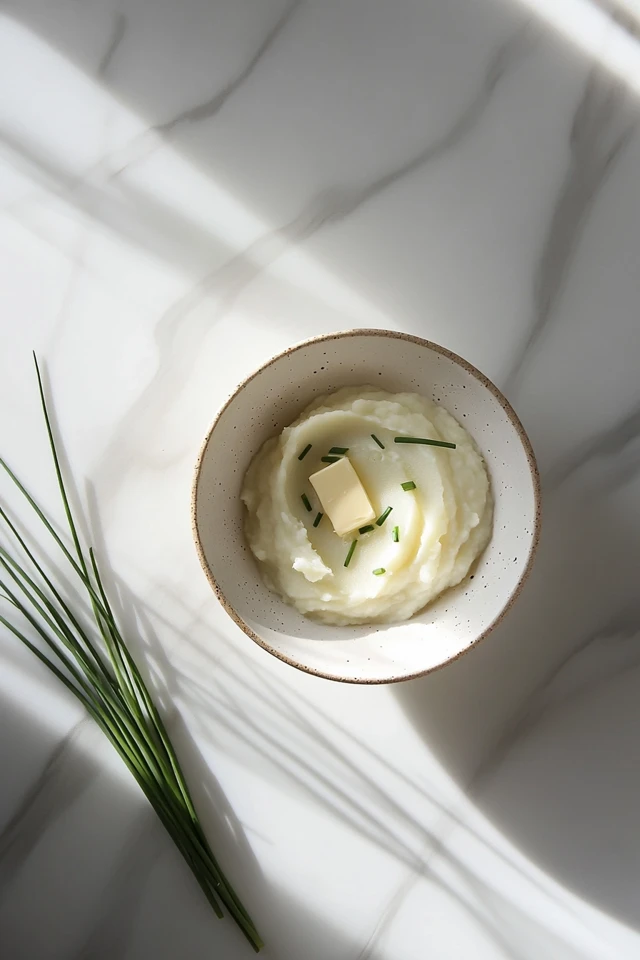
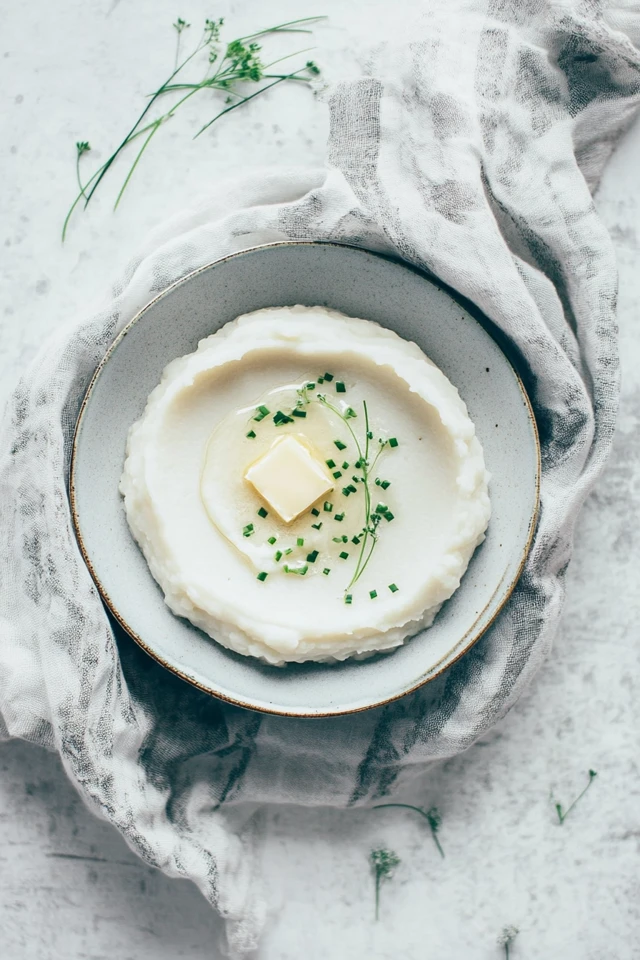
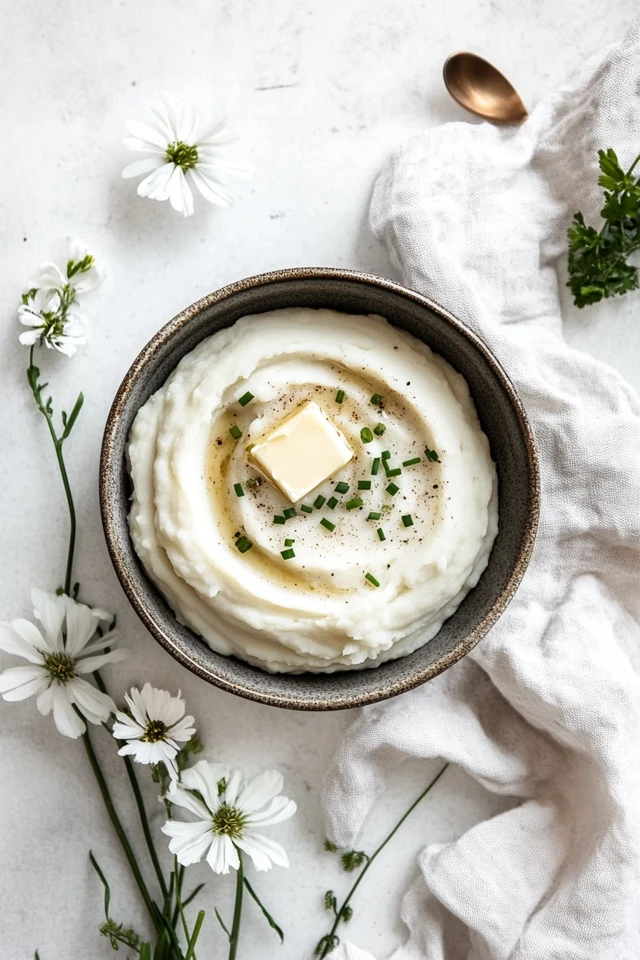
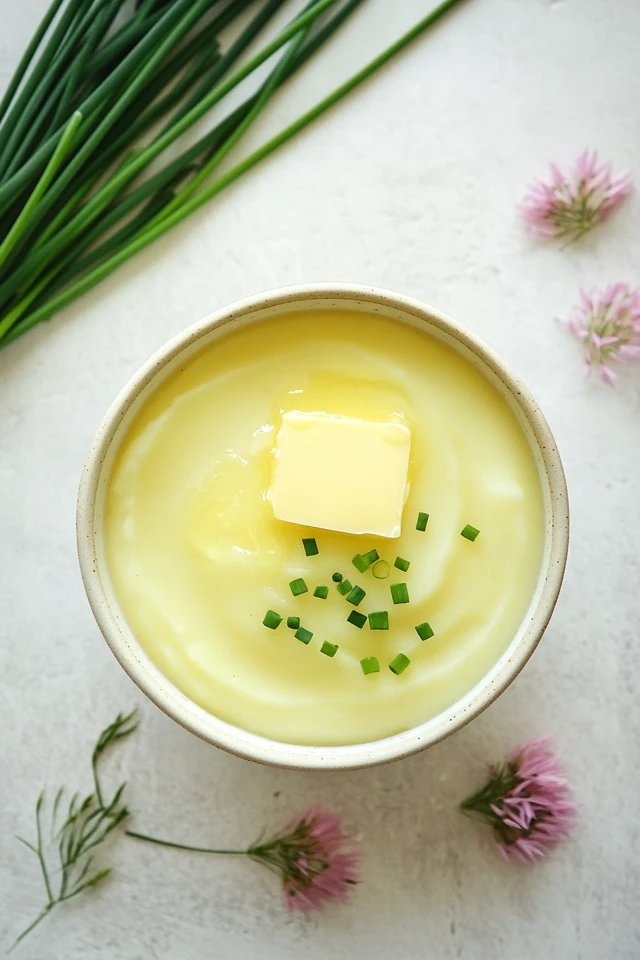
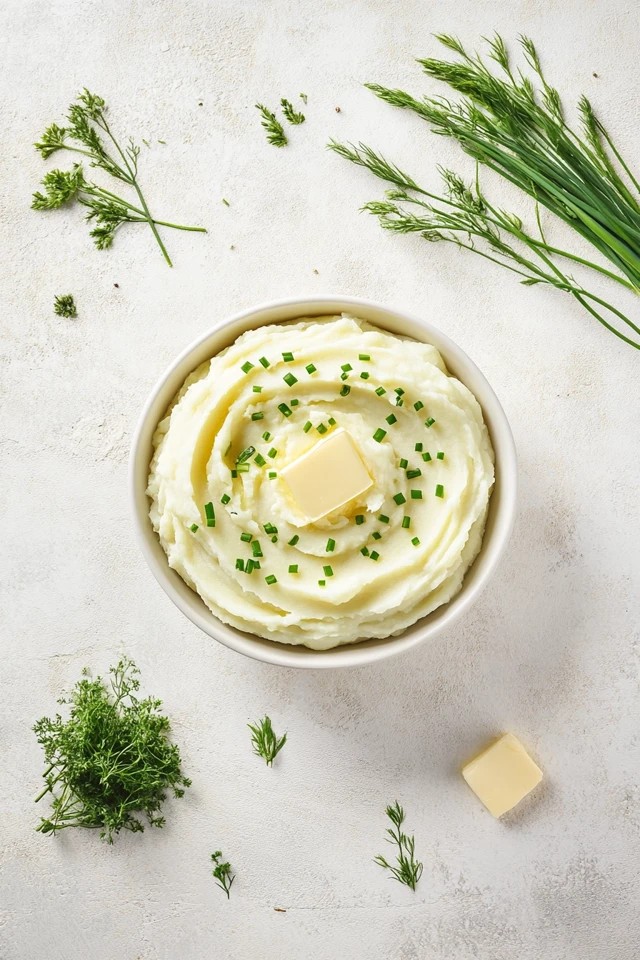
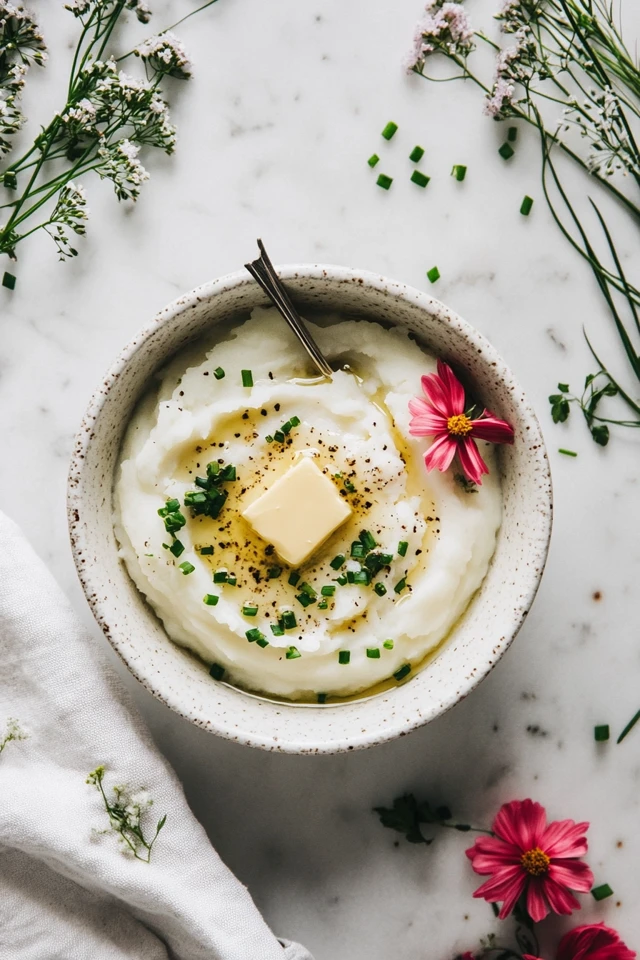
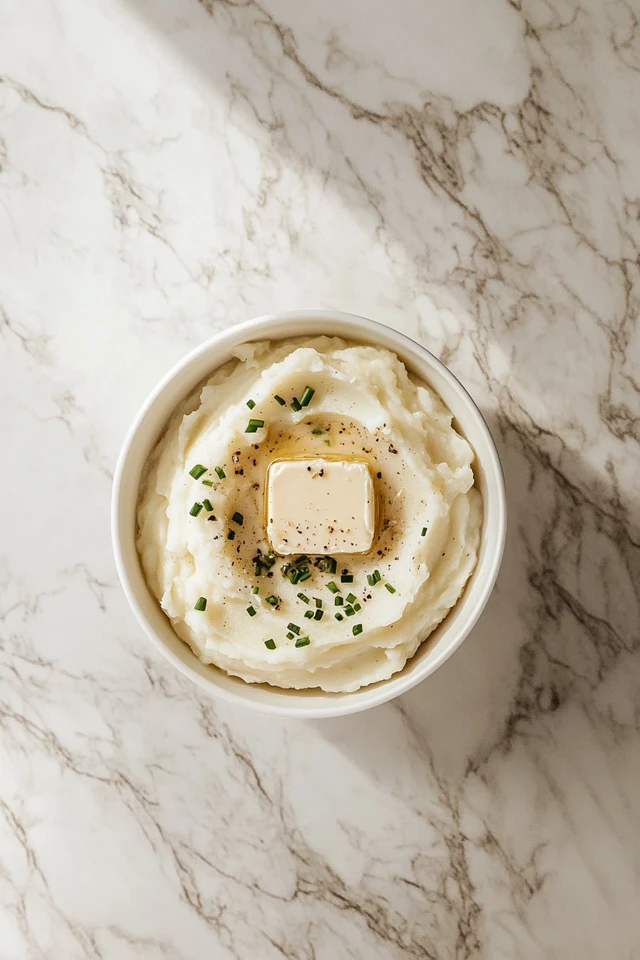
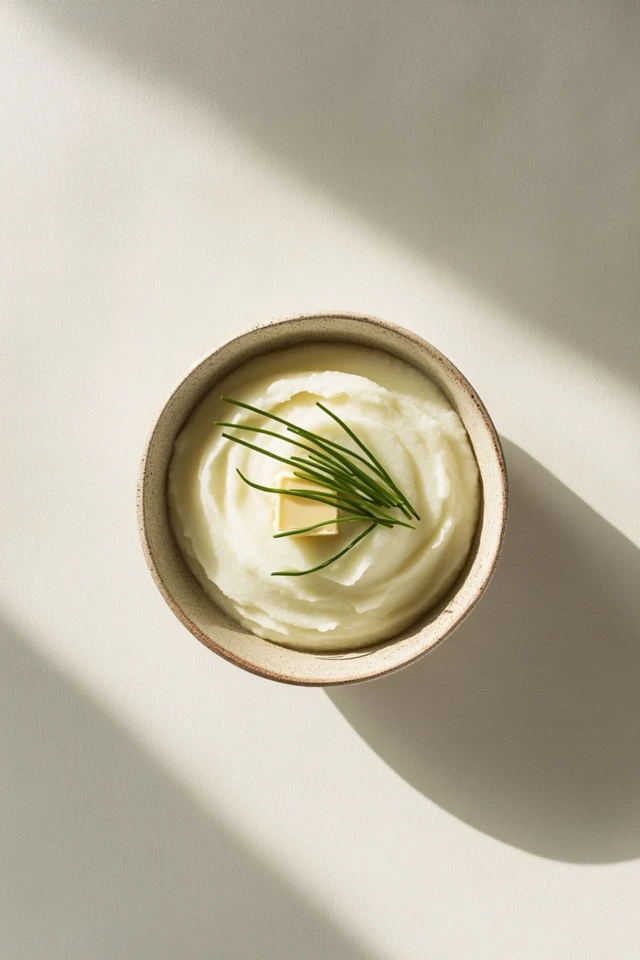
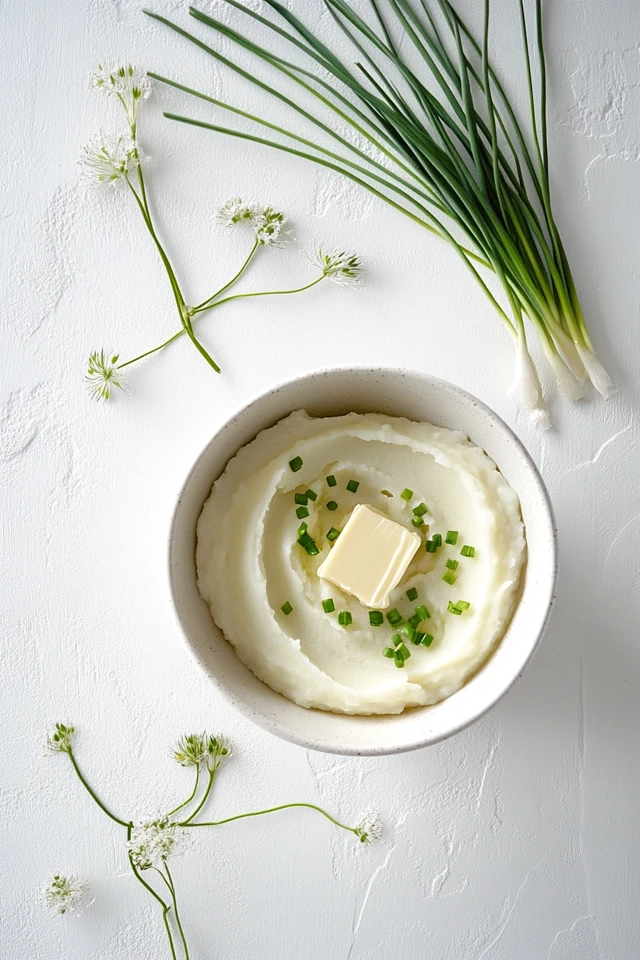
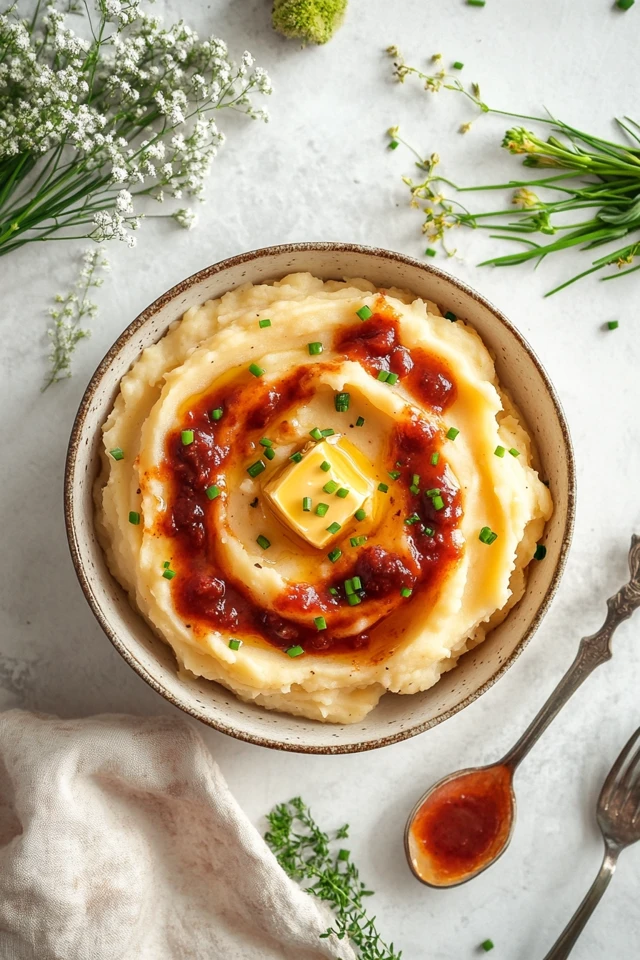
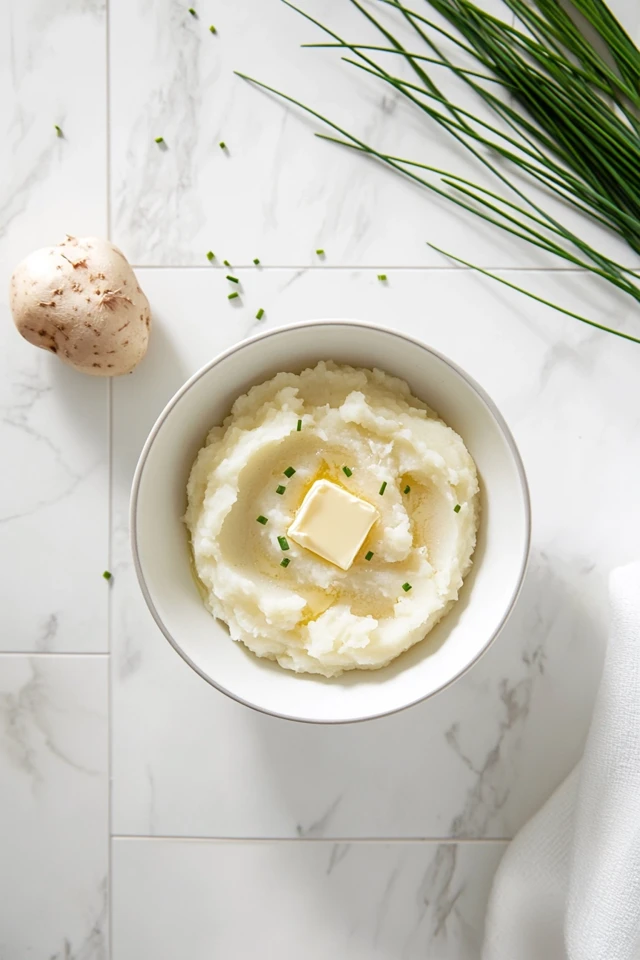
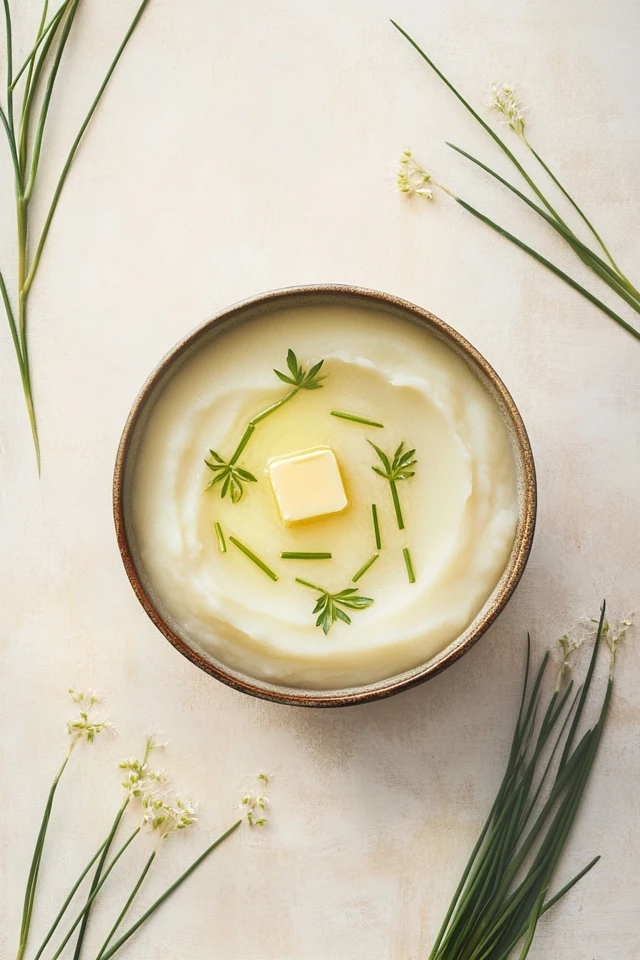
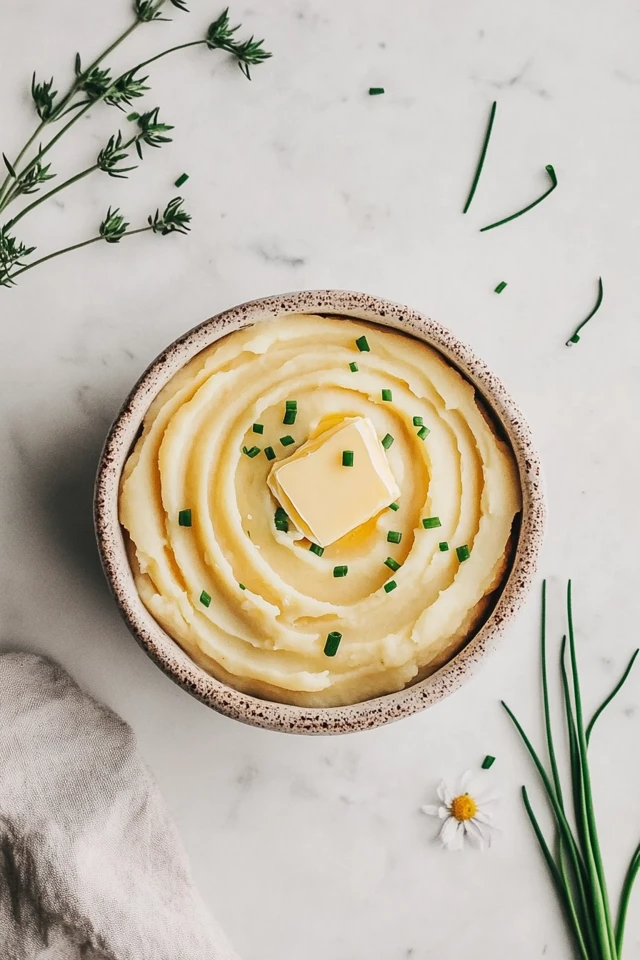
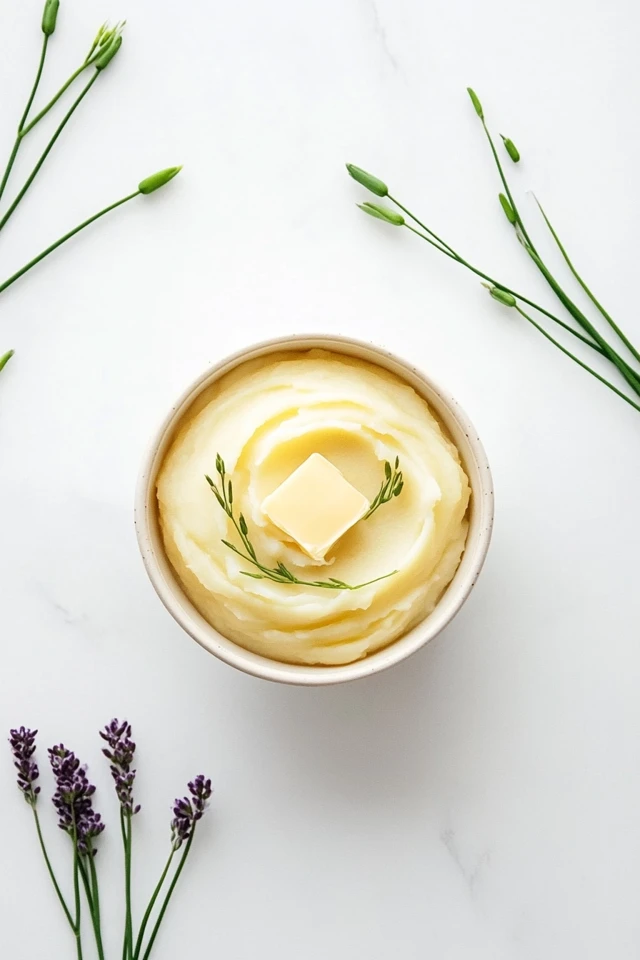
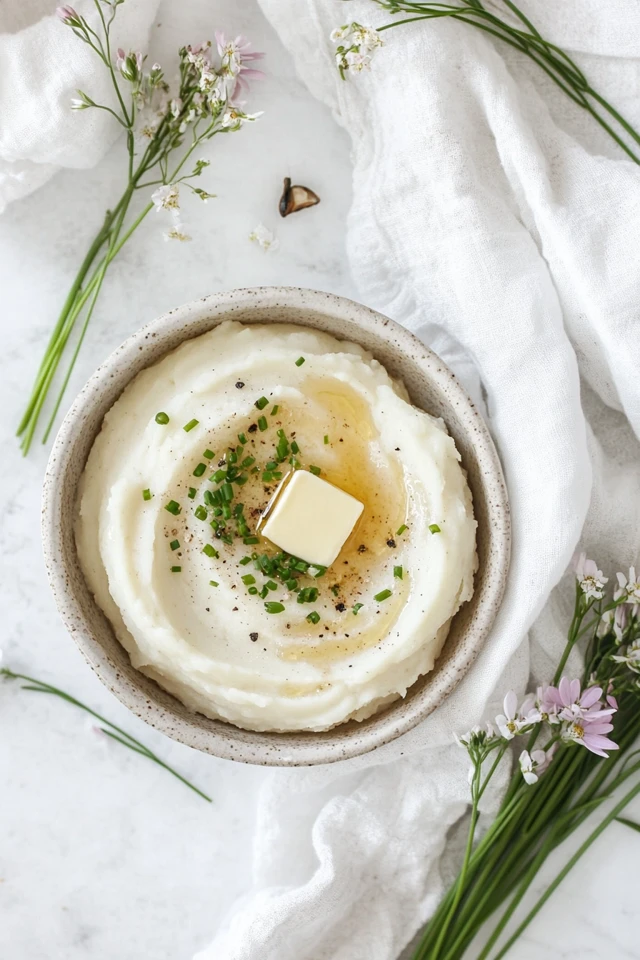
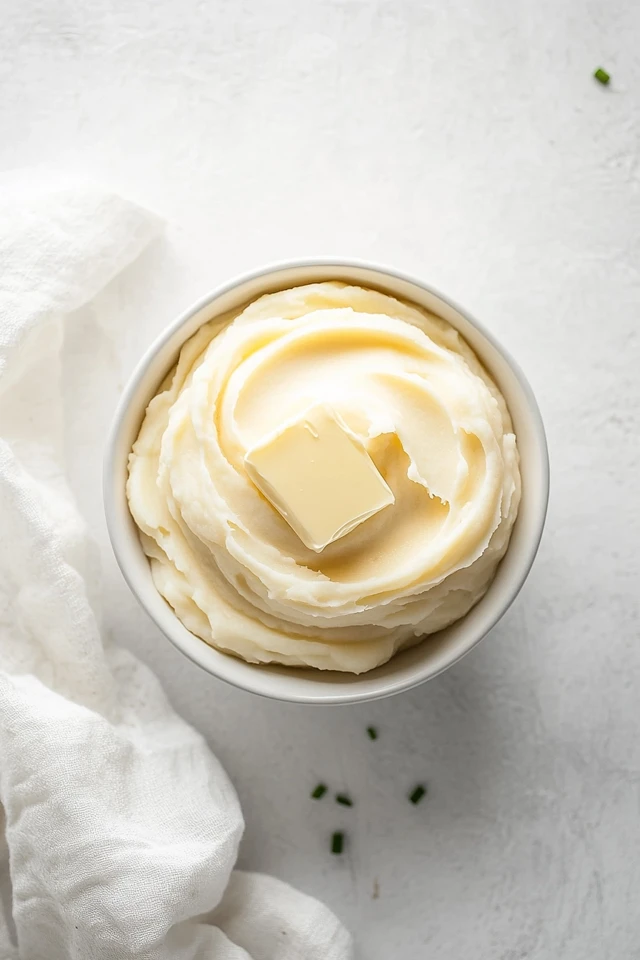
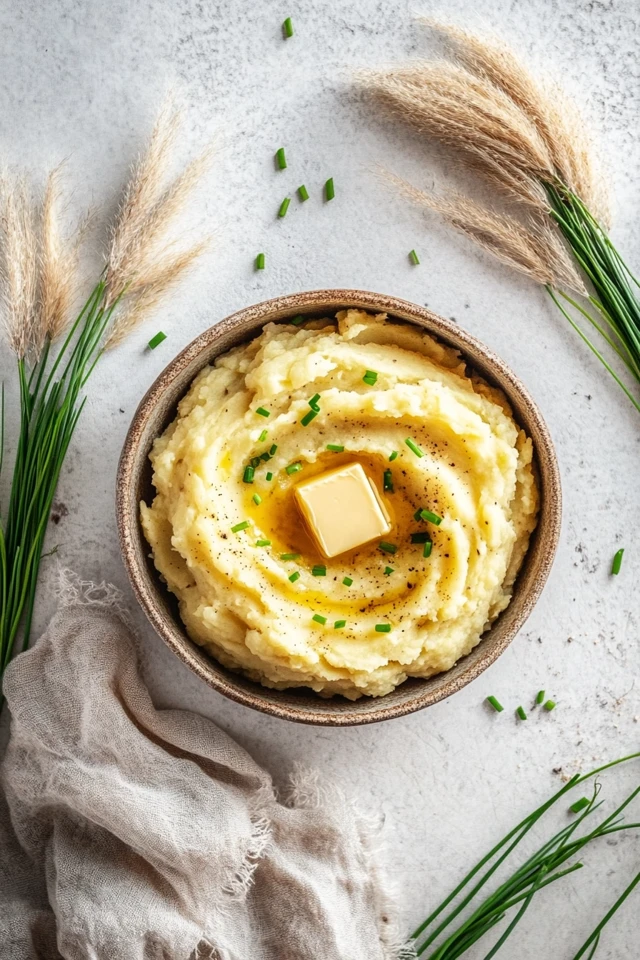
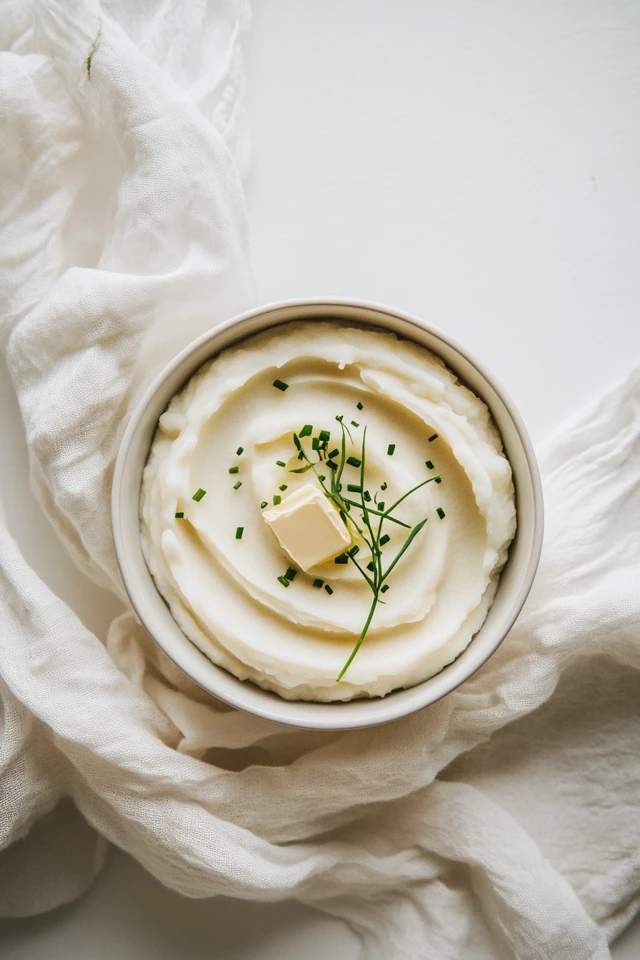
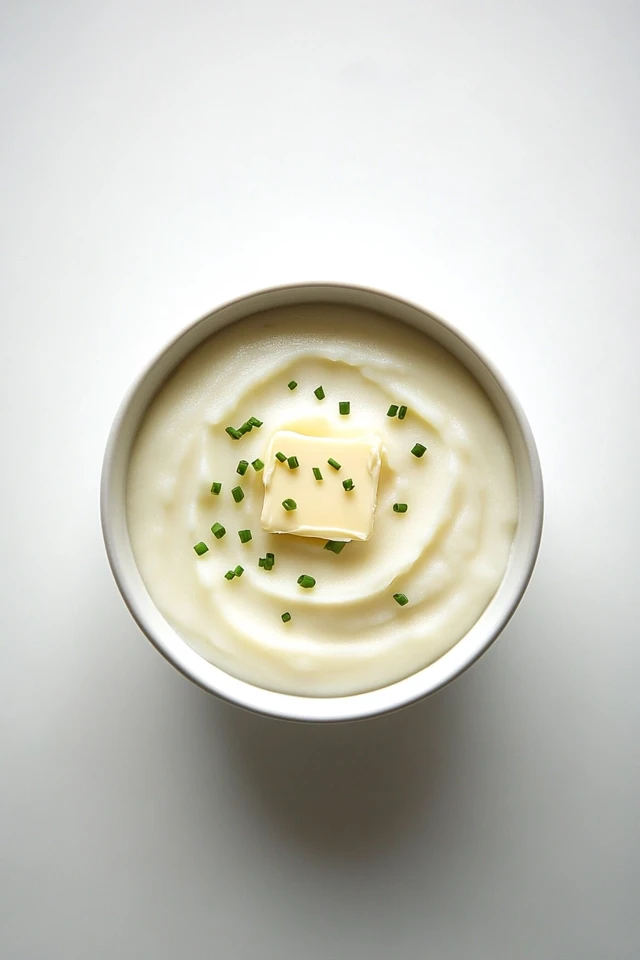
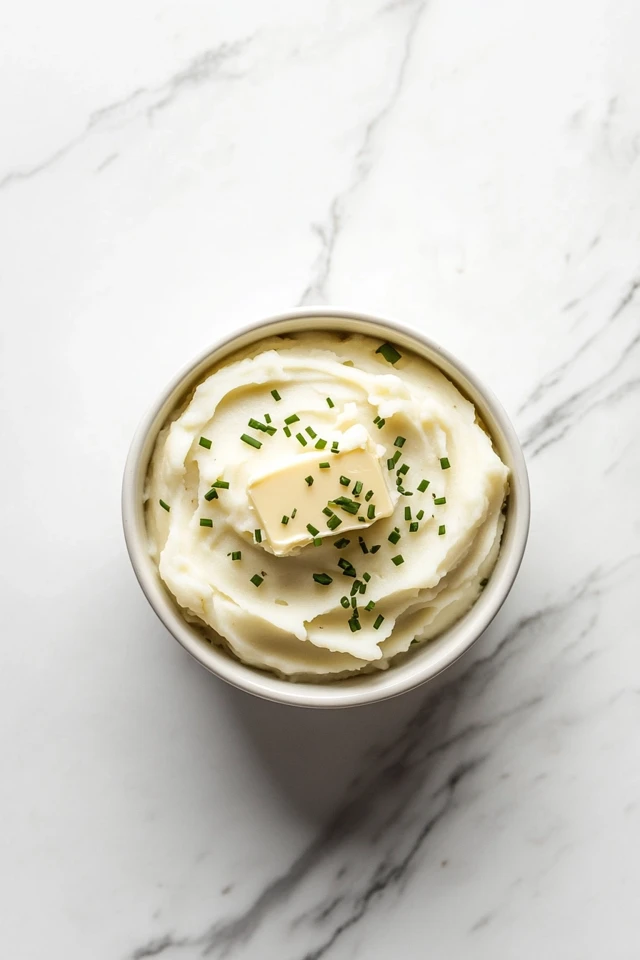
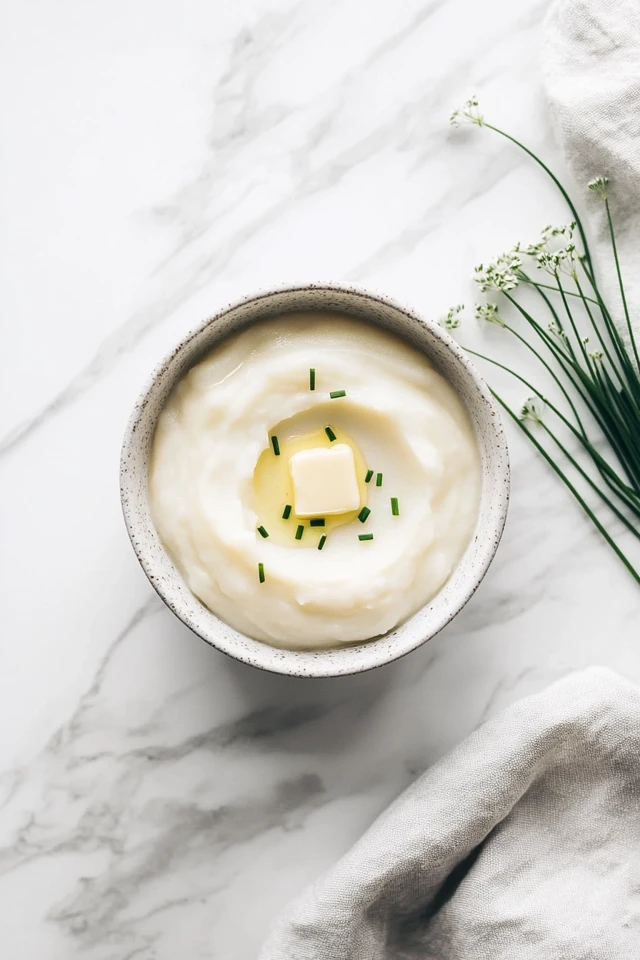
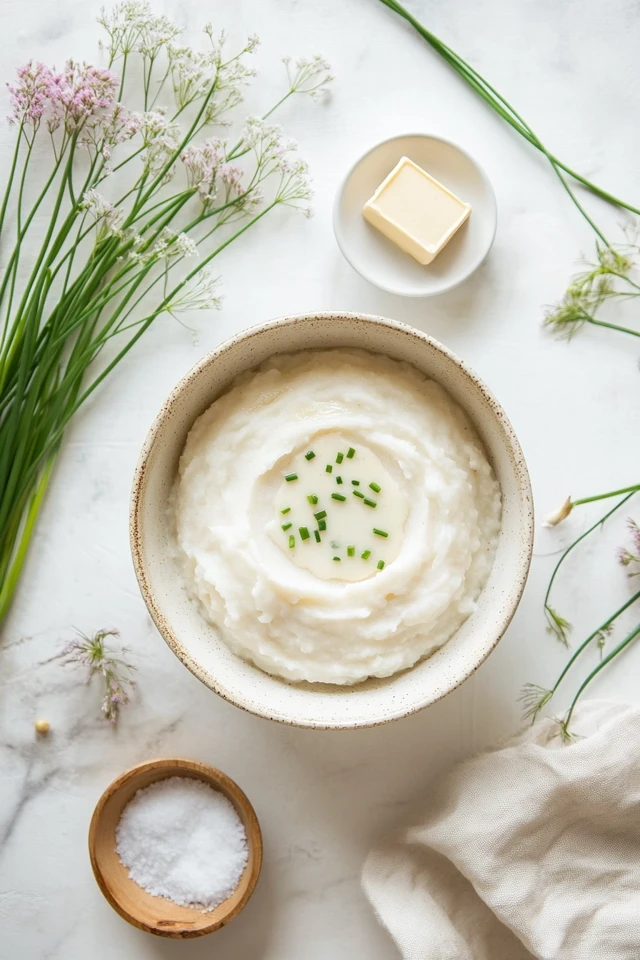
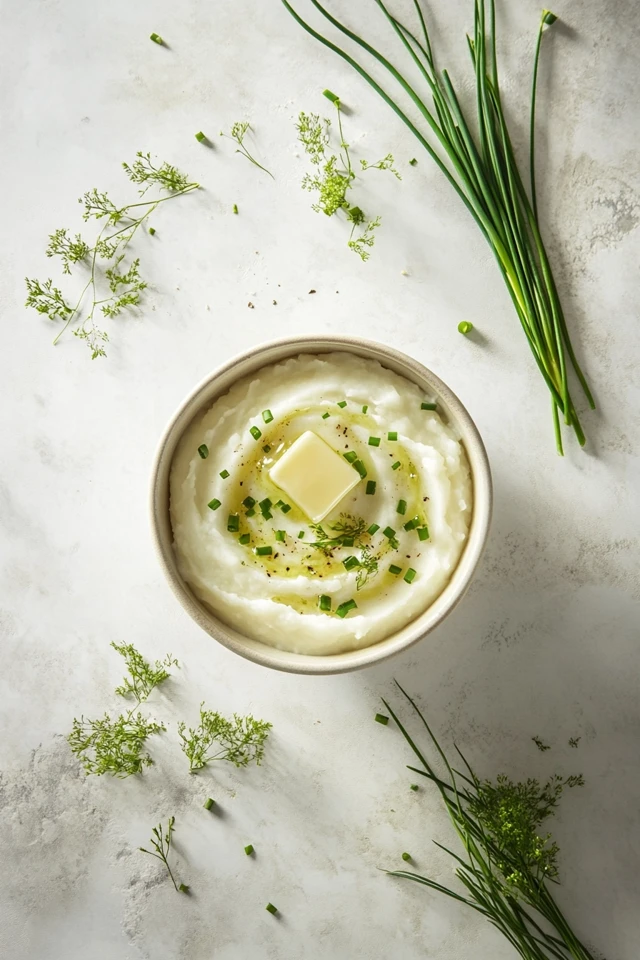
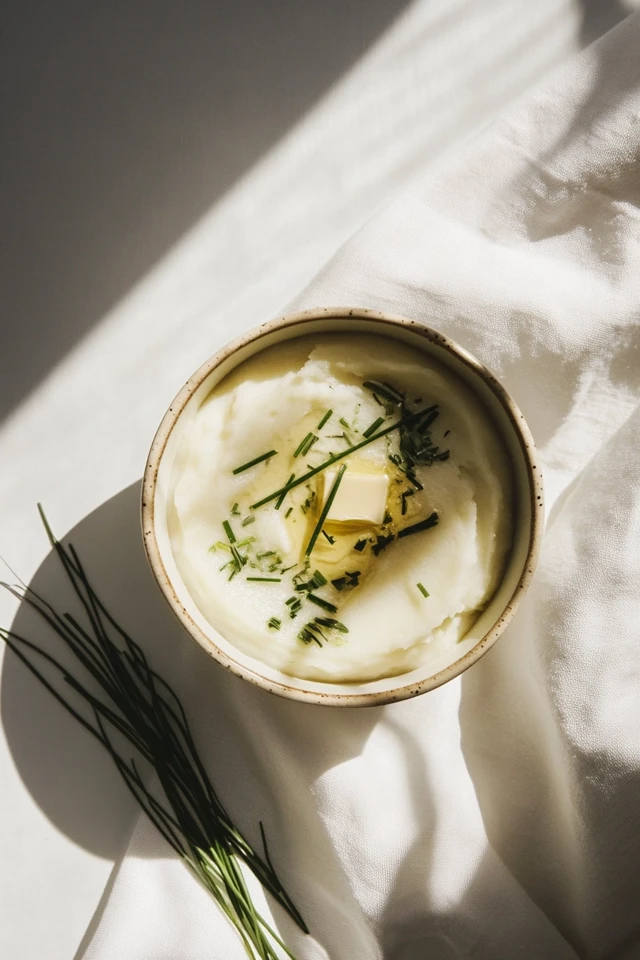
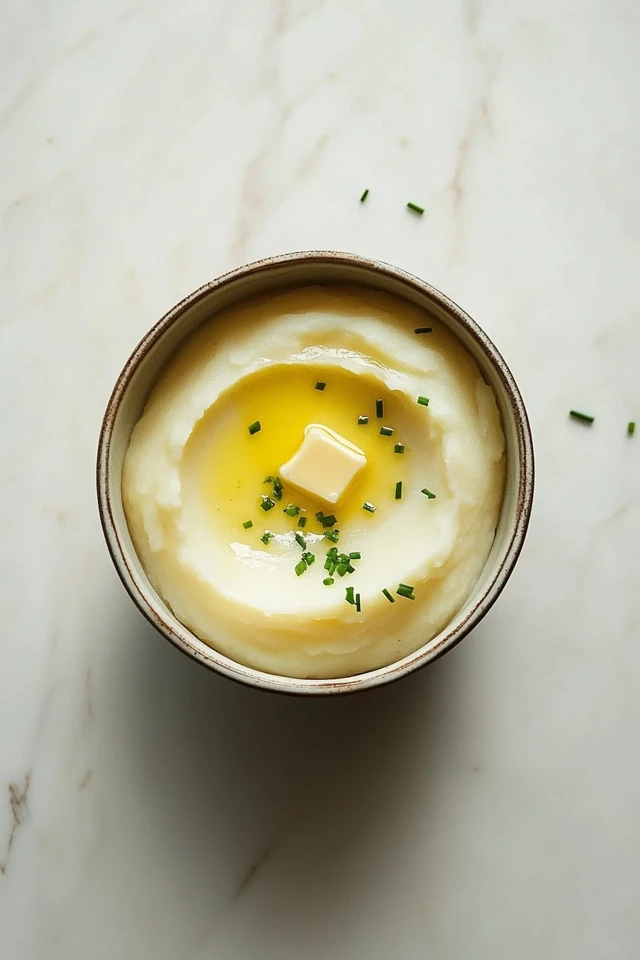
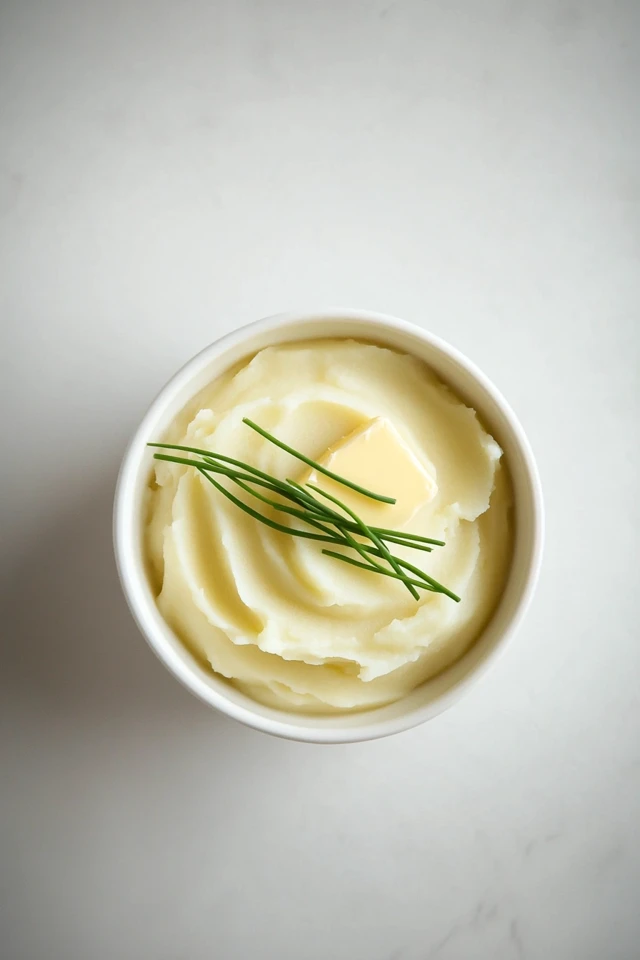
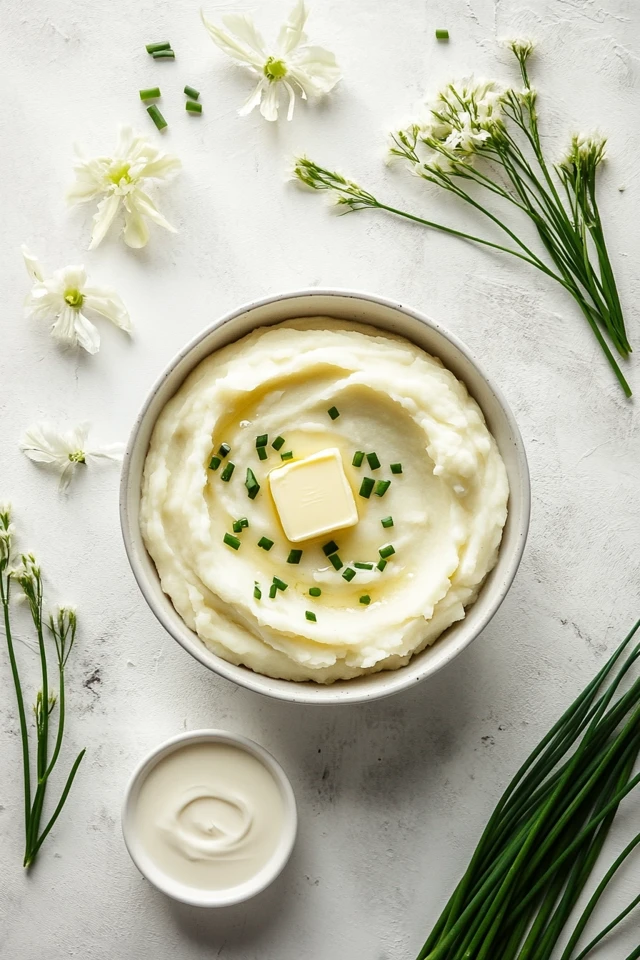
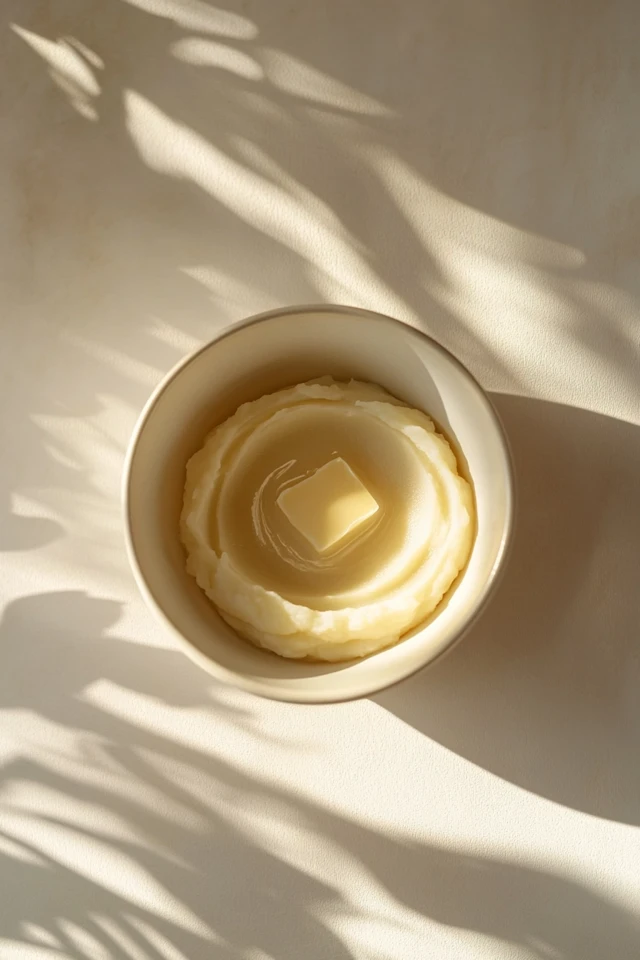
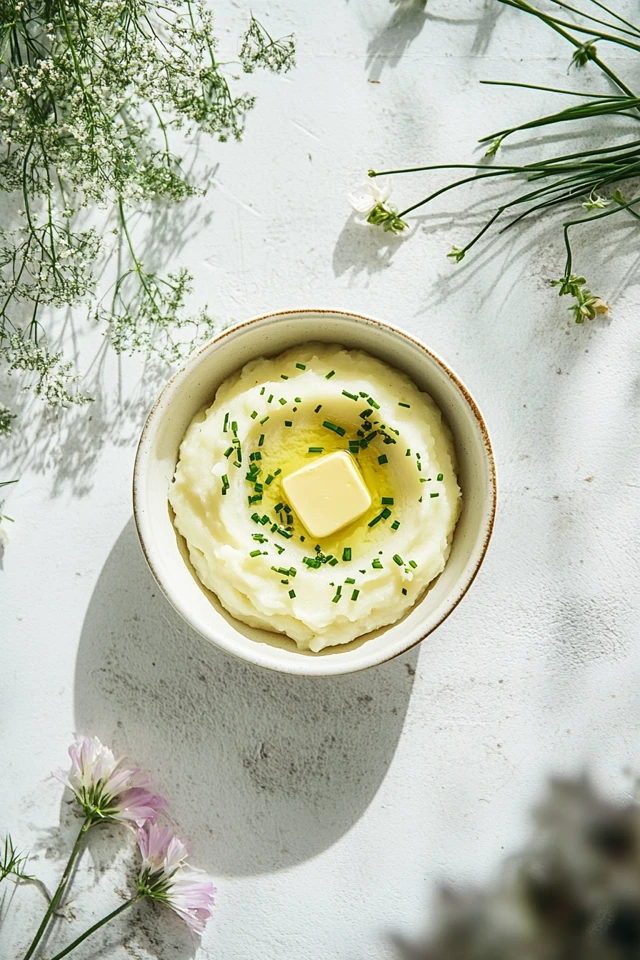
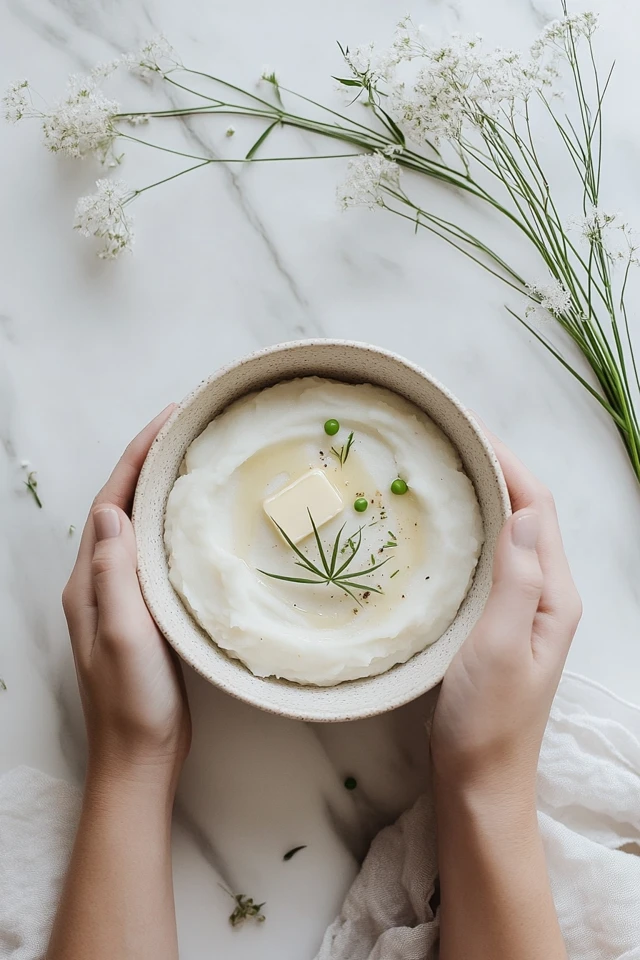
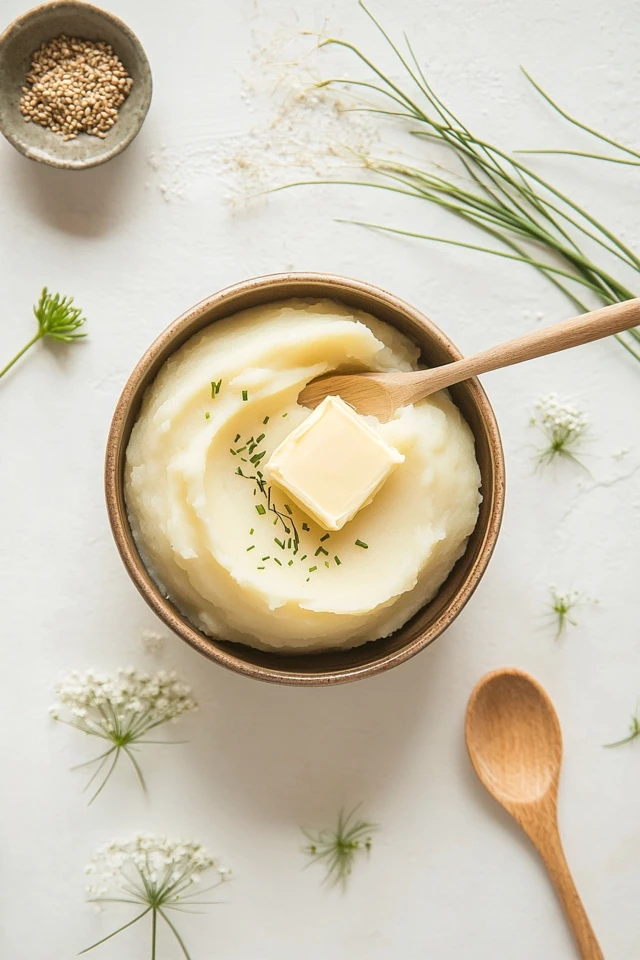
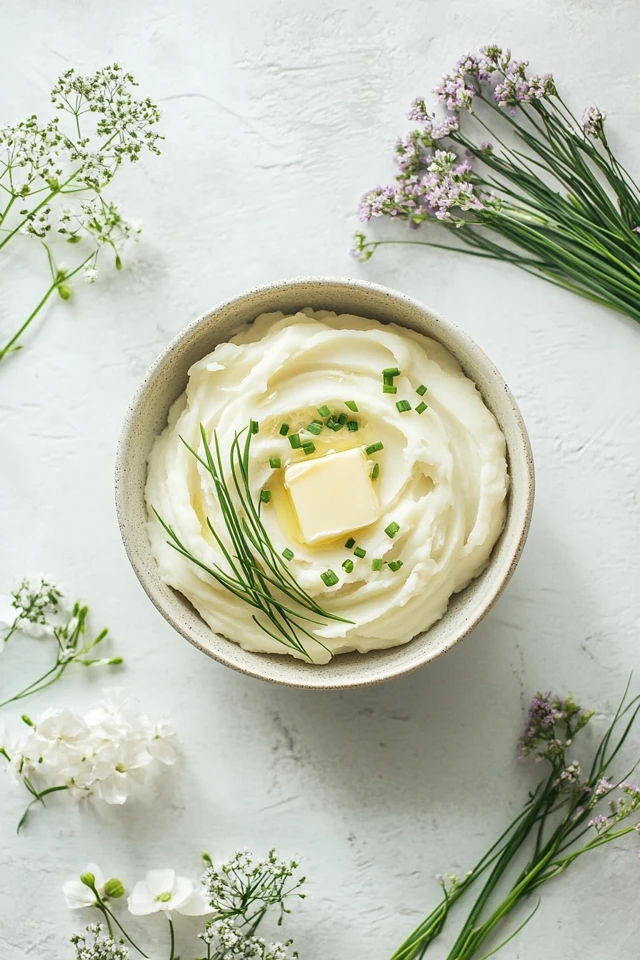
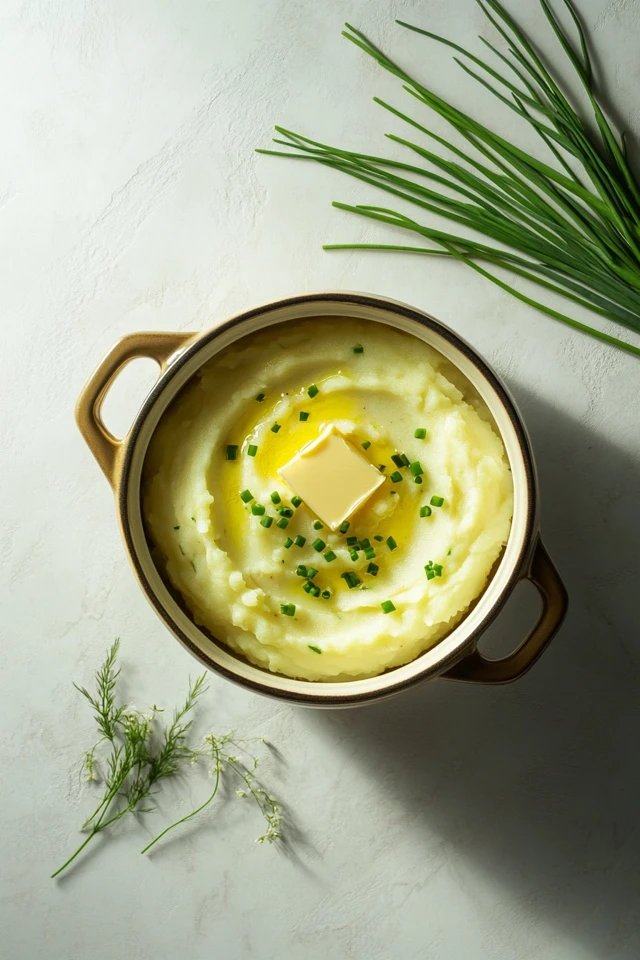
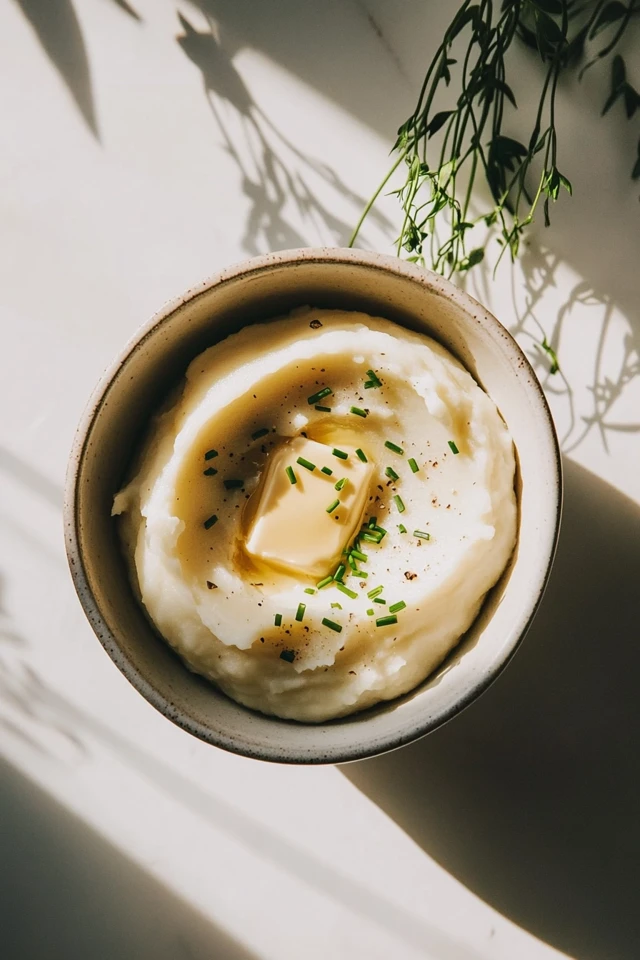
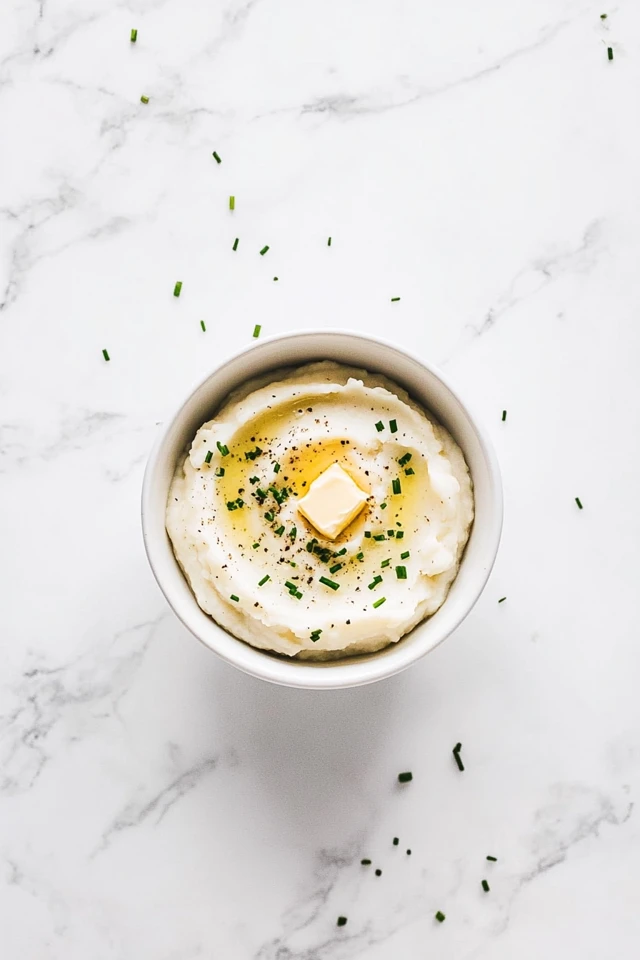
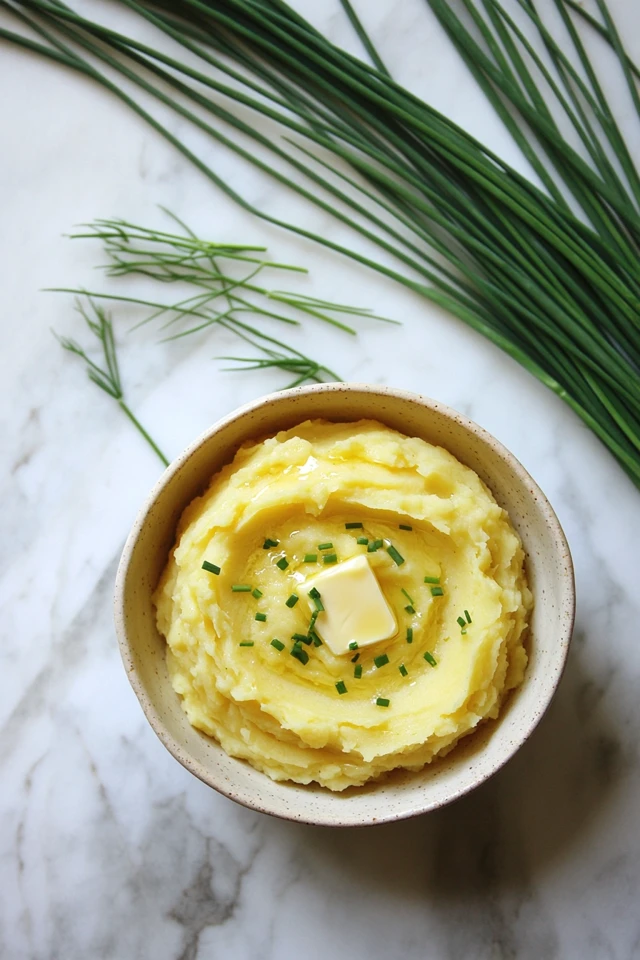
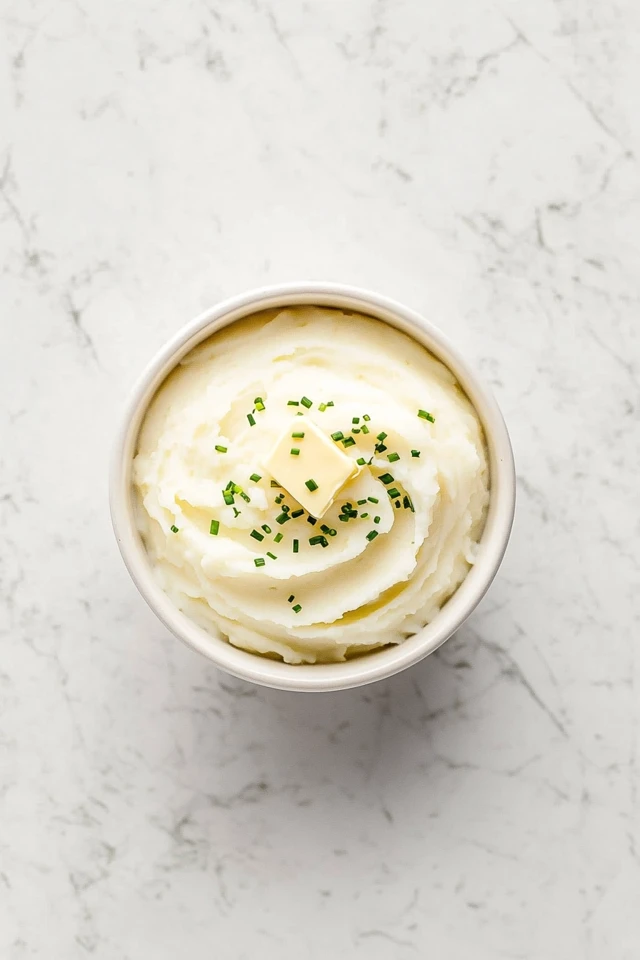

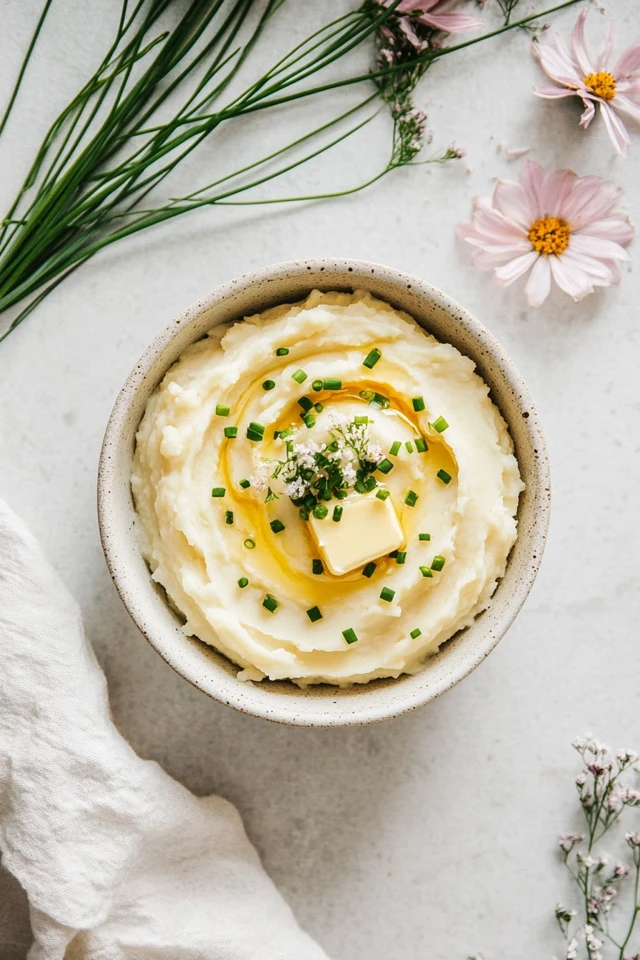
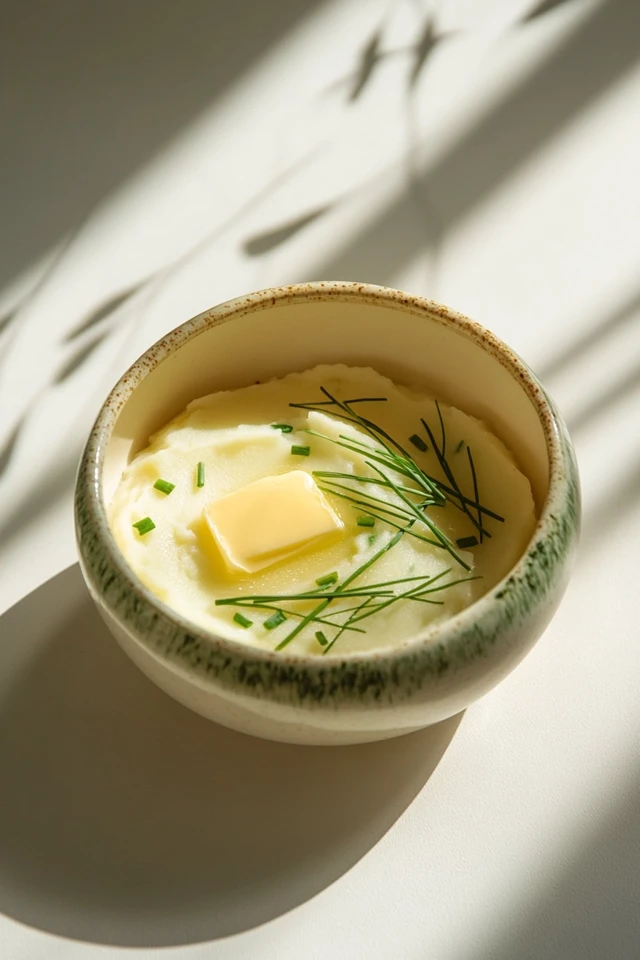
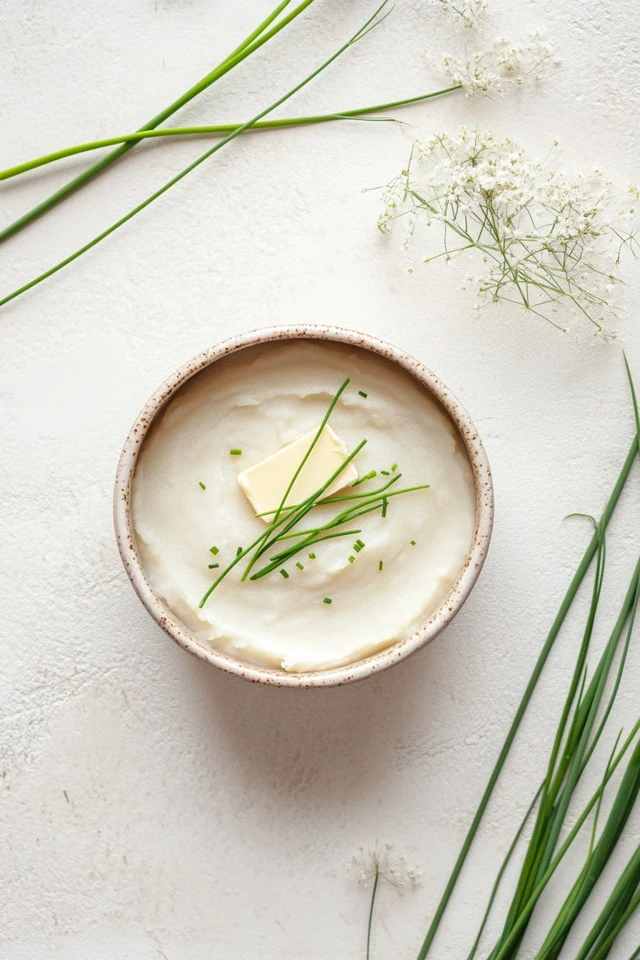
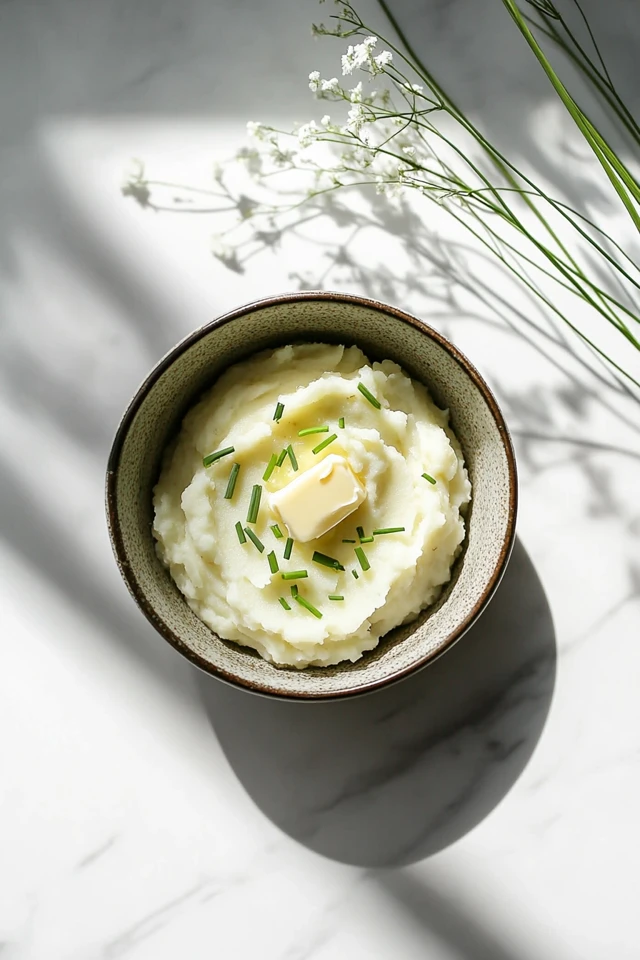
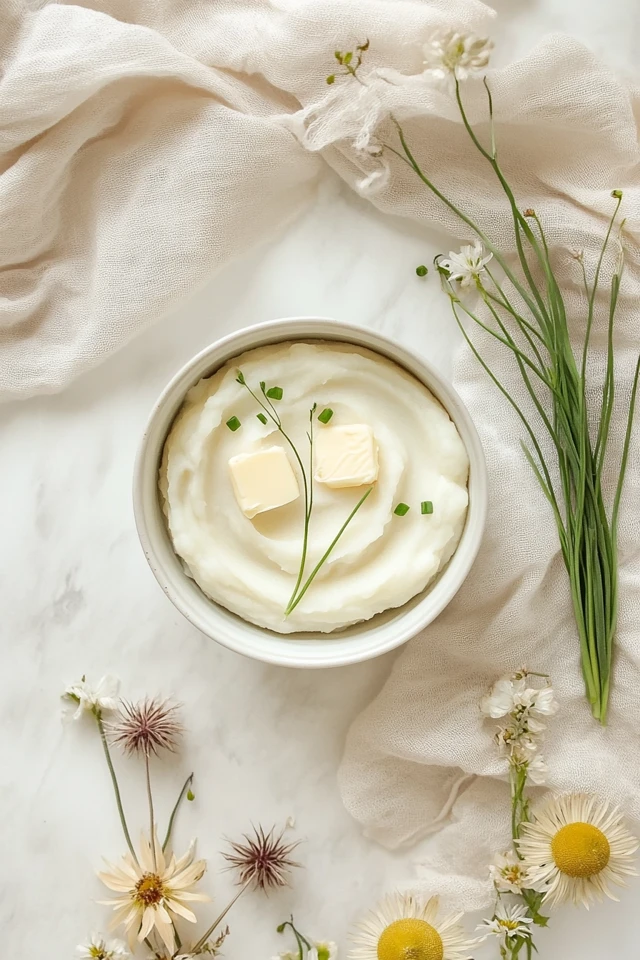
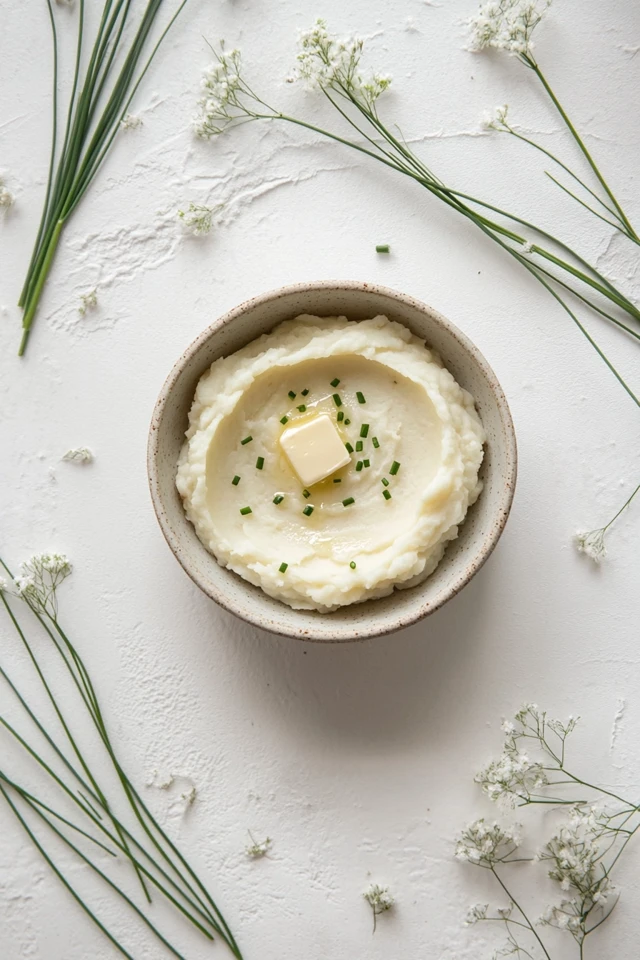
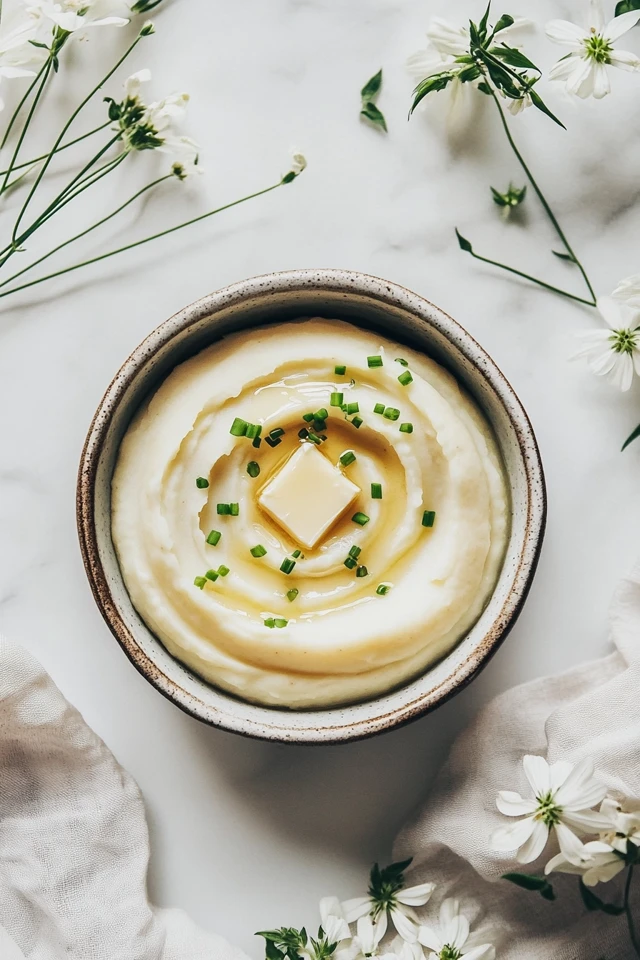
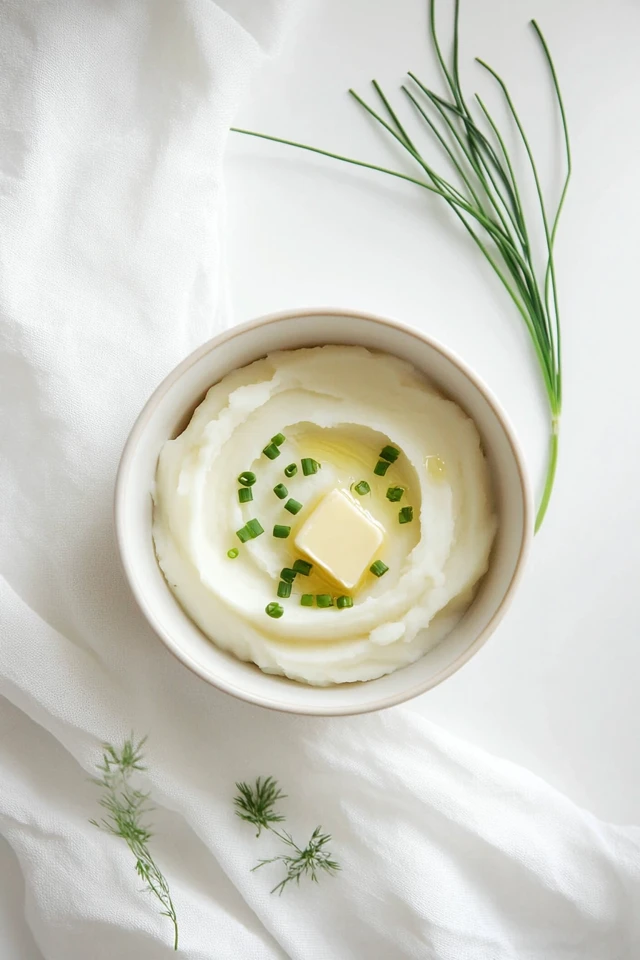
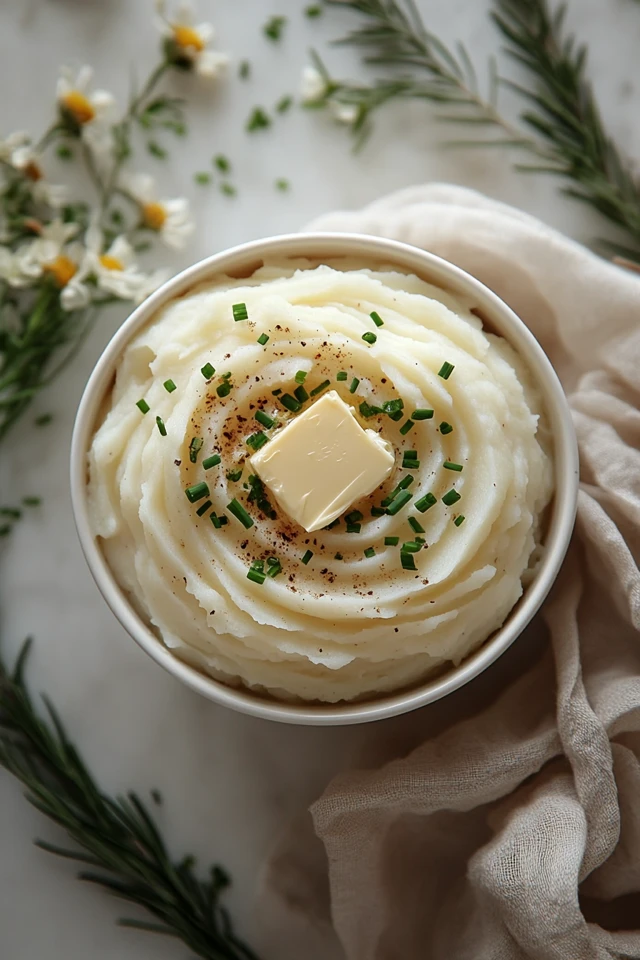
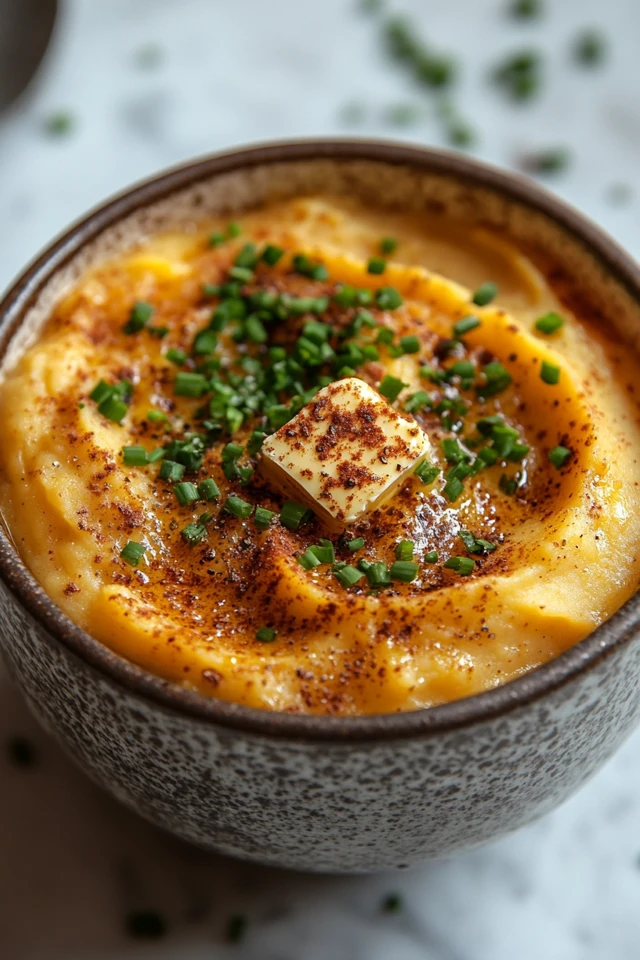
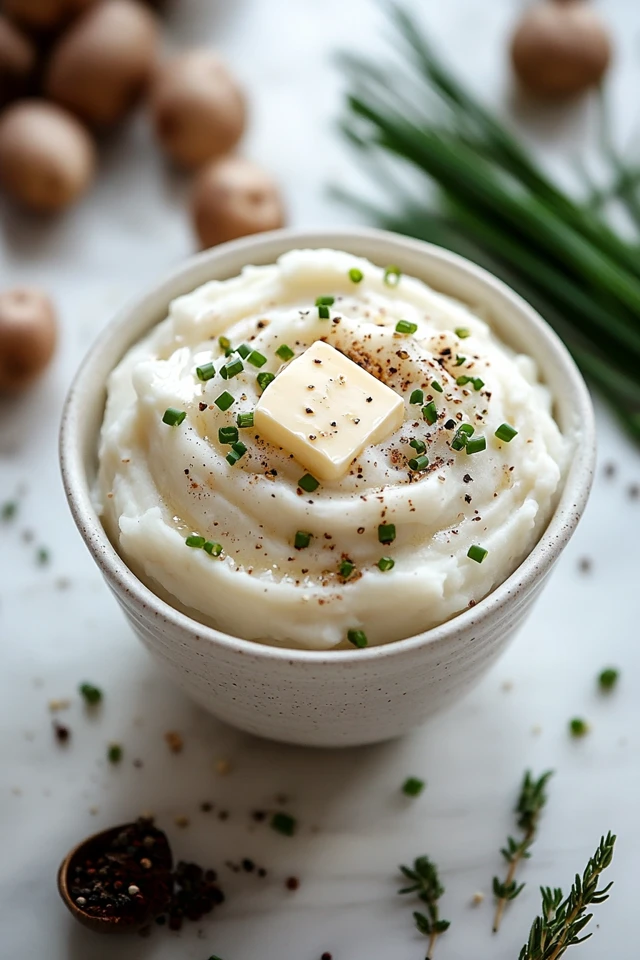
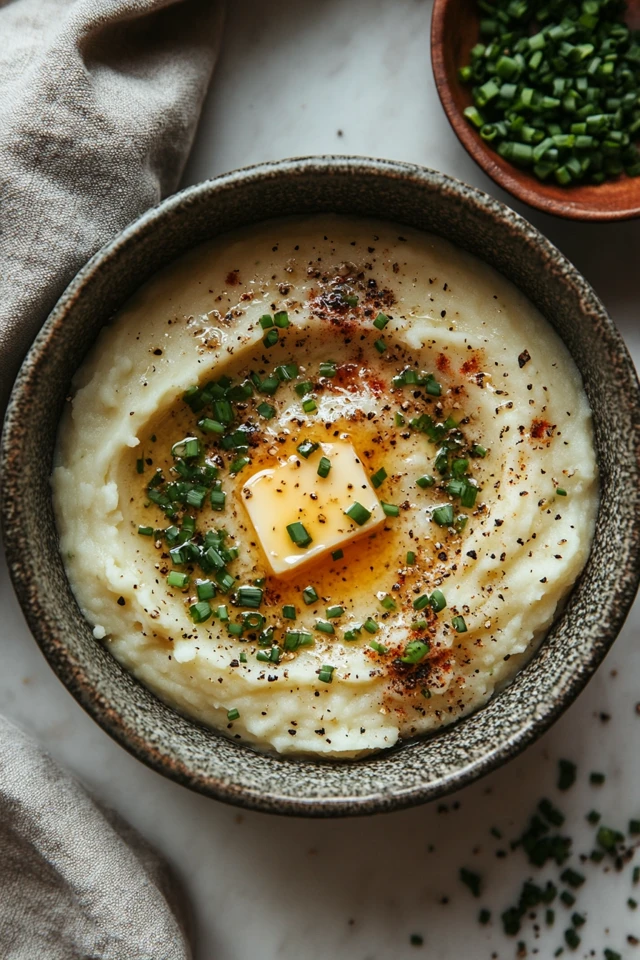
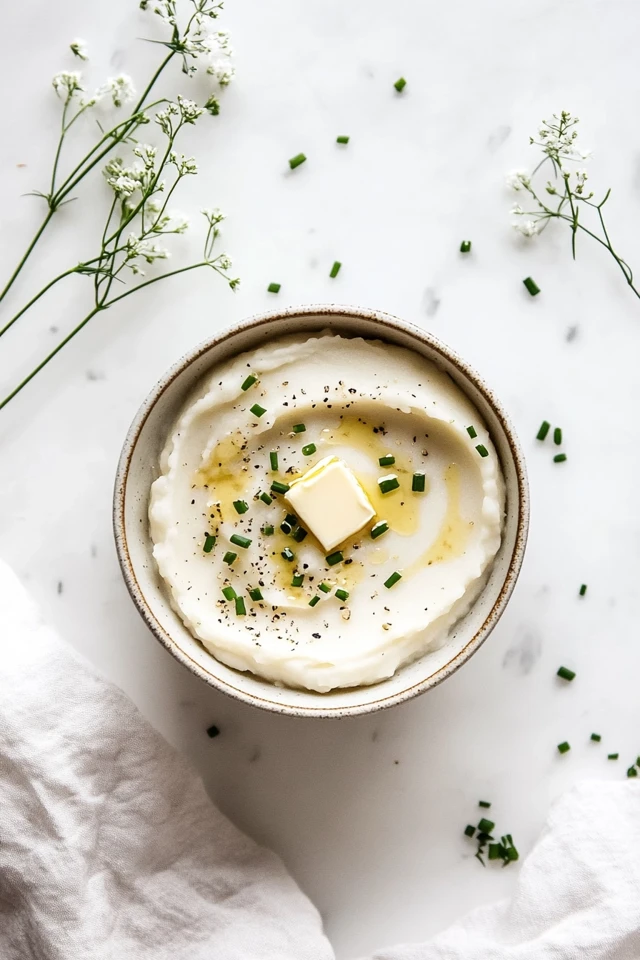
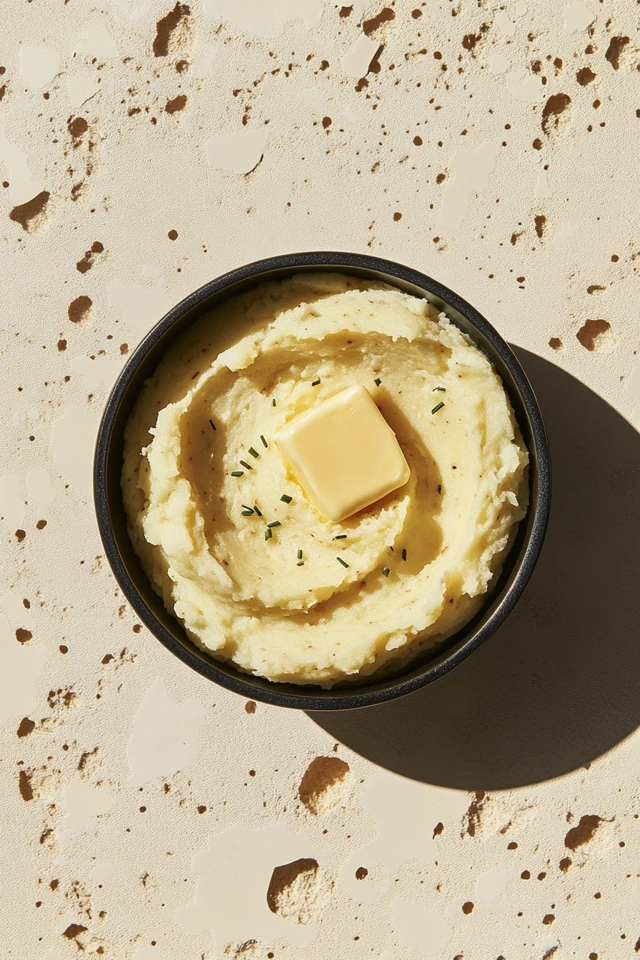
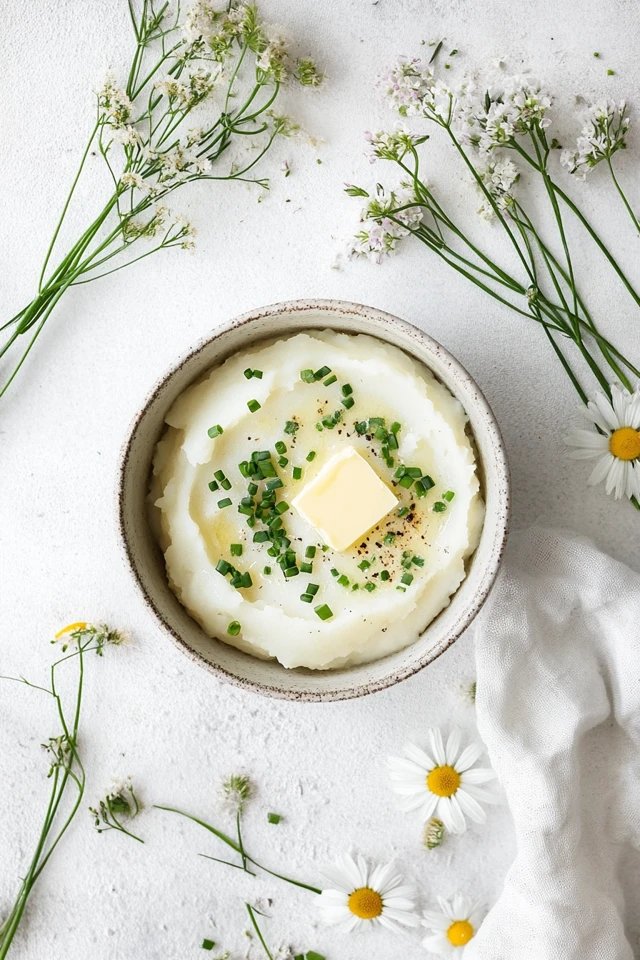
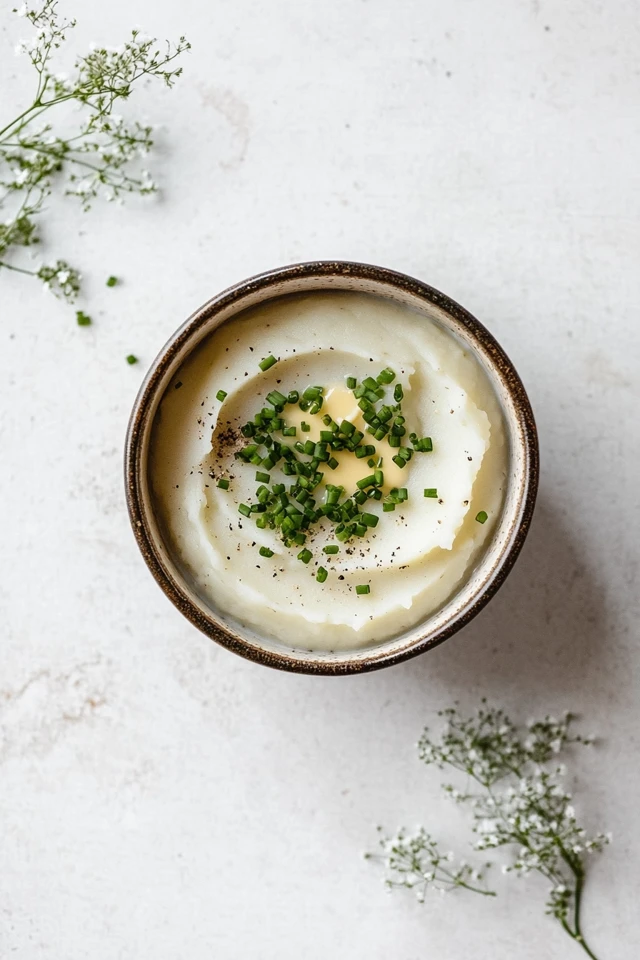
Frequently Asked Questions (FAQs)
1. Can I use different types of potatoes for this recipe?
Absolutely! While russet potatoes are ideal for their high starch content, you can substitute them with Yukon Gold or red potatoes for a slightly different texture and flavor. Yukon Golds, in particular, offer a buttery taste and creamy texture that works wonderfully in mashed potatoes.
2. Is this recipe gluten-free?
Yes, this Dairy-Free Mashed Potatoes recipe is naturally gluten-free as long as you use gluten-free plant-based milk and ensure that all other ingredients, such as nutritional yeast, are certified gluten-free. Always check labels if you have specific dietary restrictions.
3. How can I make the mashed potatoes fluffier?
To achieve fluffier mashed potatoes, ensure that the potatoes are thoroughly drained and not overworked. After mashing, gently fold in the olive oil and almond milk rather than vigorously stirring. Using a potato ricer instead of a masher can also help create a lighter texture.
4. Can I prepare the mashed potatoes ahead of time?
Yes, you can prepare the mashed potatoes ahead of time. Store them in an airtight container in the refrigerator for up to 3 days. Reheat gently on the stovetop or in the microwave, adding a splash of almond milk to restore their creamy consistency if needed.
5. What can I substitute for almond milk?
If you have a nut allergy or prefer a different plant-based milk, you can use soy milk, oat milk, coconut milk, or any other unsweetened plant-based milk of your choice. Each will impart a slightly different flavor and consistency, so choose based on your preference.
6. How do I prevent the mashed potatoes from becoming gluey?
To prevent gluey mashed potatoes, avoid overcooking and over-mashing them. Once the potatoes are tender, drain them well and mash gently with the liquids. Incorporating olive oil and almond milk slowly while mashing helps achieve a smooth texture without breaking down the starches too much.
7. Can I add roasted garlic for extra flavor?
Absolutely! Roasted garlic adds a sweet and mellow flavor that enhances the mashed potatoes beautifully. Simply roast a few cloves of garlic until caramelized and mash them into the potatoes along with the other ingredients.
8. Is this recipe suitable for kids?
Yes, this Dairy-Free Mashed Potatoes recipe is kid-friendly. The creamy texture and mild flavors are generally well-liked by children. You can adjust the seasoning by reducing the amount of salt or adding a bit of vegan cheese for an extra cheesy taste that kids enjoy.
9. How can I make the mashed potatoes lower in fat?
To reduce the fat content, decrease the amount of olive oil used in the recipe or substitute it with a lighter oil like avocado oil. Additionally, you can use a lower-fat plant-based milk or incorporate steamed cauliflower for added volume without the extra fat.
10. Can I add herbs like rosemary or thyme to the mashed potatoes?
Absolutely! Fresh or dried rosemary and thyme can add an aromatic depth to the mashed potatoes. Simply sprinkle in a teaspoon of dried herbs or stir in finely chopped fresh herbs during the mashing process to infuse the dish with their flavors.
About the Author
Welcome to Vegan & Plant-Based Kitchen! I’m Julio Arco, a passionate vegan chef dedicated to creating delicious, easy-to-make plant-based recipes that nourish both body and soul. Since embracing a vegan lifestyle in 2010, I’ve been on a culinary journey to explore the endless possibilities of plant-based cooking. From creamy mashed potatoes to indulgent desserts, my mission is to inspire and empower you to embrace a compassionate and healthy lifestyle through wholesome food.
Join me on this journey as we explore diverse flavors, experiment with fresh ingredients, and celebrate the beauty of plant-based living. Let’s create, share, and enjoy the goodness of vegan cooking together!
Disclaimer: This blog post is intended for informational purposes only. Always consult with a healthcare professional before making significant changes to your diet.

